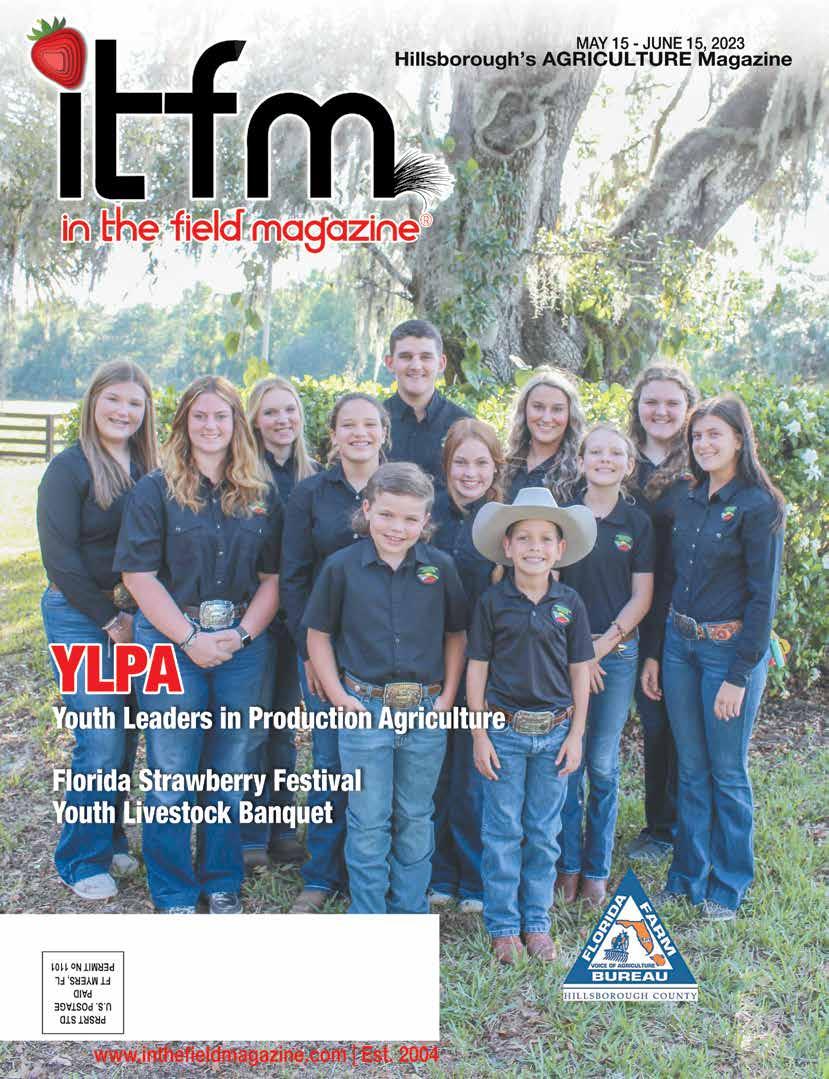





3012 S. Jim Redman Pkwy. (Hwy. 39 S) Plant City, FL • southsidestores.com 813-752-2379 Mon. - Sat.: 8 a.m. - 6 p.m.
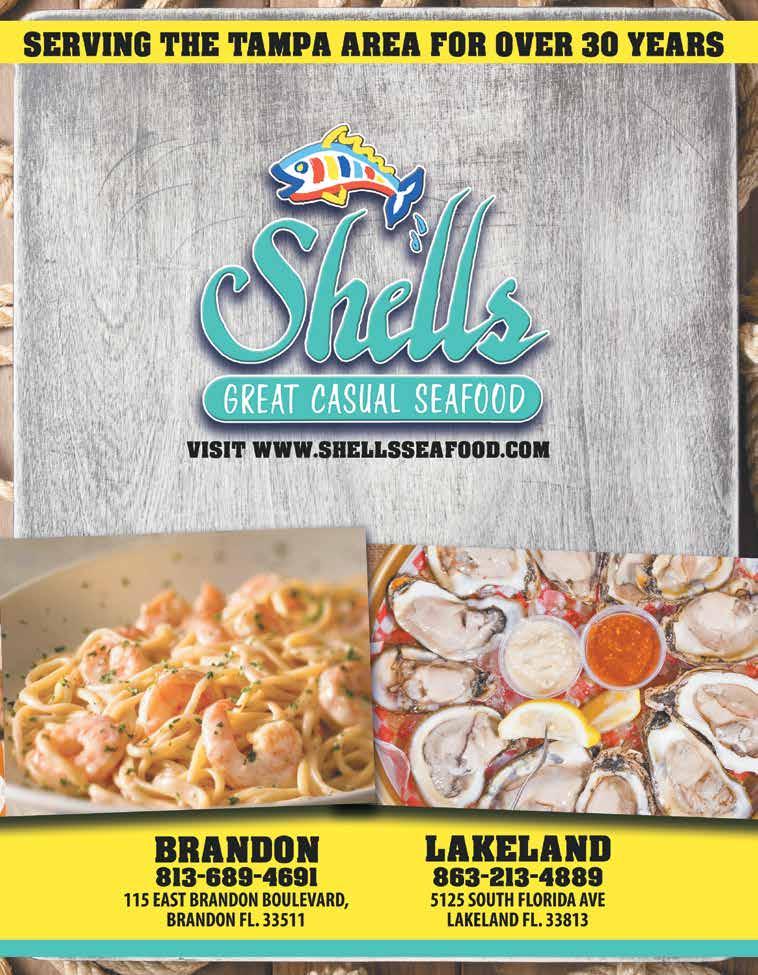
WWW.INTHEFIELDMAGAZINE.COM INTHEFIELD MAGAZINE May 2023 3 PAGE
PAGE 10
Endangered Species
PAGE 14 Entrepreneurship
PAGE 16
Creative Cowboy
PAGE 22
Rocking Chair Chatter
PAGE 28
Lanscaping
PAGE 30
News Briefs
PAGE 32
Water Apathy
May 2023
VOL.
PAGE 35
Summer Squash
PAGE 36
HSWCD
PAGE 38
Florida Friendly
PAGE 42
Regeneration
Family Farm
PAGE 44
John Dicks
PAGE 46 Activity
PAGE 47 A Closer Look
Readers!
Hidden somewhere in
Youth Leaders in Production Agriculture

40
PAGE 48
AFBF
PAGE 50
AG-Venture
PAGE 52
Tomato Disease
PAGE 56
From The Scientific Fields
PAGE 58
Strawberry Festival
PAGE 60
Recipes
PAGE 61
Hillsborough County Farm Bureau 305 S. Wheeler St. Plant City, FL.
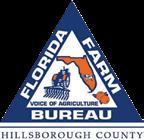
Office Hours: Mon. - Fri. 8 a.m. to 5 p.m.
Insurance Services: 813-685-5673
Member Services: 813-685-9121
OFFICERS AND EXECUTIVE COMMITTEE
Dennis Carlton, Jr.....................President
Carl Bauman................Vice President
Tony Lopez..............Treasurer
Madison Astin Salter..................Secretary
DIRECTORS FOR 2021 - 2022
Dennis Carlton Jr, Carl Bauman, Madison A. Salter, Tony Lopez, Tiffany D. Randall, Jake Cremer, Brittany Coleman, Travis Council, Drew Futch, Rep. Lawrence McClure, Sammi Wilcox, Michelle Williamson, Casey Runkles, Gayle Yanes
Kaylee Poppell, Executive Director
Farm Bureau Insurance Special Agents
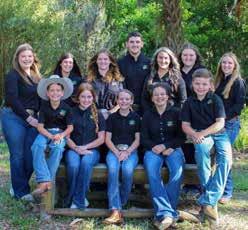
Valrico Office
813-685-5673
100 S. Mulrennan Rd., Valrico, FL. 33594
Tommy Hale, CLU, ChFC, CASL, CPCU Agency Mgr.
Julie Carlson, Amy Engle
Plant City Office
813.752.5577
305 S. Wheeler St., Plant City, FL 33563
Jeff Summer
Tampa Office
813.933.5440
6535 Gunn Highway, Tampa, FL.33625
Greg Harrell, Jared Bean
AGENCY MANAGER
*Winners will be notified by phone. You Too Can Be A Winner!
Thomas O. Hale
WWW.INTHEFIELDMAGAZINE.COM INTHEFIELD MAGAZINE May 2023 4 PAGE
813-685-9121 CONTENTS
the
a
Farmers,
Food logo. Hunt for the logo and once you find the hidden logo you will be eligible for a drawing to win a
us
Hey
magazine is
No
No
FREE No Farmers No Food Sticker. Send
your business card or an index card with your name and telephone number, the number of the page which you found the logo and where on the page you located the logo to the address below
InTheField® Magazine P.O. Box 5377 • Plant City, Fl. 33566-0042
Suzanne Holcomb
19 • ISSUE 7
YLPA

WWW.INTHEFIELDMAGAZINE.COM INTHEFIELD MAGAZINE May 2023 5 PAGE
Letter from the Editor
It’s about the time of year that I remind everyone about one of the dangers of living and working outside in Florida in the summer; sometimes Fall, Winter and Spring as well. Most of you know where this is going. It’s the HEAT! Living here we know about heat. And humidity. And the rain shower that is a trick to bring more humidity.
If you are working outside in the Florida summer, here are a few tips to deal with the heat.
• Wear loose-fitting, lightweight clothing
• Protect against sunburn
• Drink plenty of fluids
• Take extra precautions with certain medications
• Use the buddy system
• Take it easy during the hottest parts of the day
• Get acclimated
Because it is often difficult in the agriculture business to take it easy in the hottest part of the day, acclimation is the best route to take. But even if you think you can handle it, there are still things you need to be aware of. Look for signs of heat exhaustion and heat stroke.
Once your body stops being able to regulate your core temperature, heat exhaustion and heat stroke can occur. Symptoms to watch for include:
• Dizziness
• Fatigue
• Headache
• Excessive sweating
• Nausea and vomiting
In its more severe form, heatstroke, confusion, irrational thoughts, or seizures may occur. If you experience these symptoms, please seek medical attention as soon as possible.
Stay safe out there!
Sarah Holt
Publisher/Photography
Karen Berry
Senior Managing Editor/ Associate Publisher
Sarah Holt
Editor
Patsy Berry
Sales
Karen Berry
Sarah Holt
Melissa Nichols
George Domedion
Creative Director/Illustrator
Juan Alvarez
Photography
Karen Berry
Melissa Nichols
Staff Writers
Al Berry
Sandy Kaster
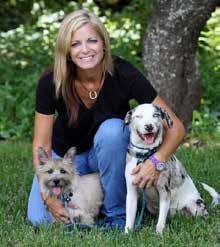
James Frankowiak
Sean Green
Contributing Writers
Woody Gore
John Dicks
Social Media
Victoria Saunders
In The Field Magazine is published monthly and is available through local Hillsborough County businesses, restaurants, and many local venues. It is also distributed by U.S. mail to a target market, which includes all of the Greenbelt Property owners, members of the Hillsborough County Farm Bureau and Strawberry Grower’s Association.
Letters, comments and questions can be sent to P.O. Box 5377, Plant City, Florida 33563-0042 or you are welcome to email them to: info@inthefieldmagazine.com or call 813-759-6909
Advertisers warrant & represent the descriptions of their products advertised are true in all respects. In The Field Magazine assumes no responsibility for claims made by advertisers. All views expressed in all articles are those of the authors and not necessarily those of Berry Publications, Inc. Any use or duplication of material used in In the Field magazine is prohibited without written consent from Berry Publications, Inc.
Published by Berry Publications, Inc. The LORD make his face shine upon you and be gracious to you. - Numbers 6:25
WWW.INTHEFIELDMAGAZINE.COM INTHEFIELD MAGAZINE May 2023 6 PAGE
STAFF








Advocacy, Education and More
-Dennis Carlton Jr. - President
Greetings,
This past month provided a mix of activities for Farm Bureau – The Voice of Agriculture -- and we took advantage of each of them thanks to the efforts of our members and fellow agriculturalists nationwide.
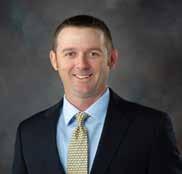
As reported in this edition of IN THE FIELD, Farm Bureau was one of nearly 600 farm organizations and agribusinesses that sought Congressional assistance to disapprove a new Department of Labor wage regulation. That hourly rate hike hurts specialty crop producers here in Florida and throughout the country, and we want that increase reset and returned to what it was. Labor is critical to farmers, but it must be affordable.
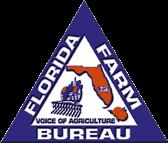
Also, a lawsuit was filed in federal court in Tampa by several agricultural groups and farmers that seeks to block the new rule about wages for H-2A farmworkers due to erroneous methodologies. The suit was filed against the U.S. Department of Labor an Acting Secretary Julie Su.
In both instance wages are the issue. Yes, the H-2A program is important, but it must remain affordable. Our farmers deserve a level playing field, and that is not the case when you look at the subsidies enjoyed by competing farms in Mexico. They are subsidized from “seed to sale” while specialty crop growers here in the U.S. get no subsidies. That is not fair and must be addressed.

Continuing with quest to keep lawmakers aware of agriculture’s challenges, we met with U.S. Senator Rick Scott in regards to the upcoming Farm Bill so he is current on our position and needs with respect to this important federal legislation. That meeting was
HILLSBOROUGH COUNTY
in follow-up to the discussions with federal lawmakers that took place during our recent “Field to the Hill” program in Washington D.C. that detailed our 2023 Farm Bill priorities that included increased support for various agricultural programs with federal oversight, labor and trade issues. This is an important ongoing initiative for our industry.
Last month’s activities also included Ag-Venture, a hands-on program designed to teach Hillsborough County 3rd graders about the importance of agriculture and to help them develop an understanding and appreciation for where their food comes from and the impact agriculture has on their daily lives. Some 1,200 3rd graders participated in Ag-Venture. And, we are getting ready for Ag Abilities, an educational program for Exceptional Education Students that teaches them about agriculture.
My thanks to the volunteers who have made each of these initiatives a reality. Without their support and involvement, little of this could have taken place. Consequently, if you are a Farm Bureau member actively involved as a volunteer assisting us in our advocacy on behalf of agriculture, thank you! If you are not a member, please consider joining so that you can help us with our role as the “Voice of Agriculture” whether it is locally, statewide or nationally. Please visit www.hcfarmbureau.org for more information about member benefits and opportunities for engagement.
Dennis Carlton, Jr.
Dennis Carlton Jr. - President
WWW.INTHEFIELDMAGAZINE.COM INTHEFIELD MAGAZINE May 2023 8 PAGE 305 SOUTH WHEELER STREET • PLANT CITY, FL 33566 • 813-685-9121
Board of Directors
Dennis Carlton Jr, President; Carl Bauman, Vice-President; Tony Lopez, Treasurer; Madison Astin Salter, Secretary; Tiffany D. Randall, Jake Cremer, Brittany Coleman, Travis Council, Drew Futch, Rep. Lawrence McClure, Sammi Wilcox, Michelle Williamson, Casey Runkles, Gayle Yanes
Dennis Carlton Jr.
We are proud to celebrate the accomplishments of the 2023 Senior Class.


Now that you’ve harvested seeds of success, Mosaic and the community wish you a bright and bountiful future!
www.mosaicfloridaphosphate.com
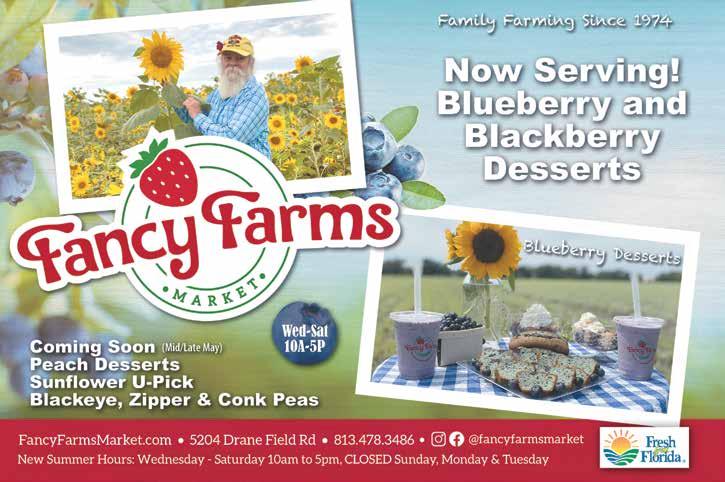
WWW.INTHEFIELDMAGAZINE.COM INTHEFIELD MAGAZINE May 2023 9 PAGE
Congratulations, Graduates!
Beach Mice
By Libby Hopkins
Sea Turtles are one of the largest and most beloved animals associated with Florida coastal habitats. However, there is a tiny creature that depends on the coastal dune system that few get a chance to see, the beach mouse. As the name implies, beach mice make their home on beaches and in nearby dunes. These mice are a subspecies of the Oldfield mouse. There are eight subspecies, five on the Gulf Coast, two on the Atlantic, and one extinct species.
The Florida Panhandle has four beach mouse subspecies. They are, the St. Andrew beach mouse, Choctawhatchee beach mouse, Santa Rosa beach mouse and the Perdido Key beach mouse. Beach mice utilize the primary and secondary dunes for food, water, cover, and raising young. They have many burrows throughout the dunes and forage on seeds, fruits of beach plants, and insects. Beach mice are most active during the night and considered to be nocturnal. Under the cover of darkness, they make several trips in and out of their burrows to find and cache food. Feeding activities of beach mice disperse seeds and plants, adding to the health of the dune ecosystem.
Worldwide, the biggest threat to ecosystem biodiversity is habitat loss and fragmentation. Since beach mice are dependent on one specific type of habitat, it makes them susceptible to natural and human created disturbances. Due to loss of their primary and secondary dune habitats, all the beach mice except for one are classified threatened or endangered. The Santa Rosa beach mouse is the only subspecies that is not listed as threatened or endangered due to most of their habitat being protected within conservation lands on Santa Rosa Island.
The Choctawhatchee beach mouse range is limited to Florida from Choctawhatchee Bay in Okaloosa County to St. Andrew Bay in Bay County. Populations on conservation lands are found in the sand dunes on Shell Island, Grayton Beach and Topsail Hill.
Very little information is available about the life history of the Choctawhatchee beach mouse, so information about the Oldfield mouse species is generally accepted as the same. Breeding peaks during the winter months, but can occur year around if there is adequate food available. Beach mice are
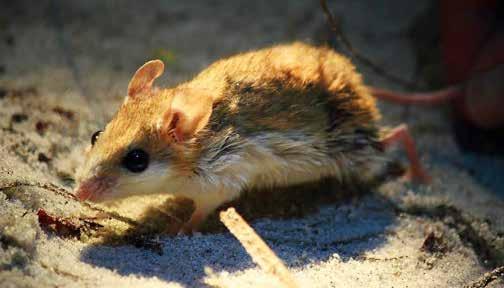
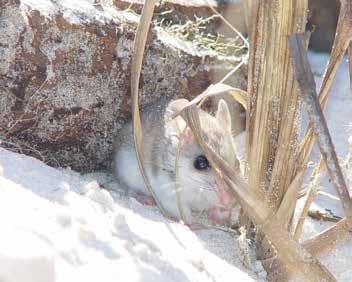
monogamous and will mate with only one partner at a time. The total gestation period for a beach mouse is 23 days, with the female giving birth to four pups per litter. Females are also capable of breeding 24-hours after giving birth. Beach mice populations are continually monitored to track movement, growth, and reproduction. The common method for population counts is through the use of traps and track tubes that record mice tracks. Track indices have been developed to estimate mouse abundance.
A collaboration of three state agencies just concluded a five day population study of the Choctawhatchee beach mouse in south Walton County. The purpose of this effort was to study the movement in heavily (beach mice) populated areas and the effects of non-native predators on those populations. Predators specifically studied were feral cats, foxes and coyotes. The study also evaluated the 2011 re-introduction of 50 beach mice, from the Topsail Hill Preserve State Park population into the Grayton Beach State Park population. Reintroduction was done to boost numbers of the mice in that area and expand the gene pool for the subspecies.
The data from the current effort is still being analyzed but positive results are expected due to healthy beach mice being found in areas of focus and some new areas. Public lands such as parks and wildlife refuges are important for the preservation of beach mice as well as other coastal dune species that utilize similar habitats. It is important that awareness be shared on these and other species to help these efforts to keep our habitats safe and healthy.
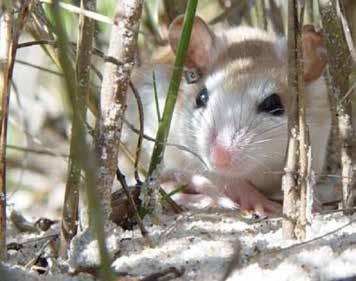
WWW.INTHEFIELDMAGAZINE.COM INTHEFIELD MAGAZINE May 2023 10 PAGE
E ndang E r E d S p E ci ES
OUR PROFITS ARE YOUR PAYDAY
When you do business with Farm Credit, you are a member of a cooperative. When we do well, you do well. And we’ve been doing well for over 100 years.
Refinancing Buildings
Fences
Equipment
Loans for land, homes & living.

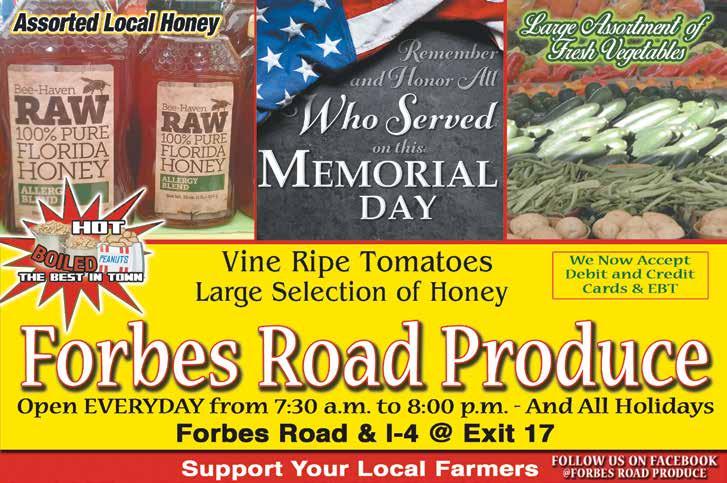
AGAZINE May 2023 11 PAGE


WWW.INTHEFIELDMAGAZINE.COM INTHEFIELD MAGAZINE May 2023 12 PAGE

WWW.INTHEFIELDMAGAZINE.COM INTHEFIELD MAGAZINE May 2023 13 PAGE
UF/IFAS EXTENSION ENTREPRENEURSHIP program grows new Florida farmers



This summer and fall, UF/IFAS Extension will host the Ag Entrepreneurship Series, a program designed to help aspiring and beginning farmers sow the seeds of success.
“Extension offices across the state often hear from residents who are interested in starting a small farm or related business. However, many of these folks don’t have an agricultural background and need help getting their idea off the ground,” said Tatiana Sanchez-Jones, commercial horticulture agent with UF/IFAS Extension Alachua County. “In response, a few years ago we created the Ag Entrepreneurship Series, and it’s still going strong,”
Sanchez co-leads the program with Kevin Athearn, regional specialized agent for rural agribusiness development. “Even those with business experience can benefit greatly from the program,” Athearn said. “That’s because agricultural enterprises are quite a bit different from other types of businesses. Our program helps people factor in those important differences and be in a better position to get financing for their farm and make the most of that investment.” The program is open to anyone in Florida. Registration for the 2023 Ag Entrepreneurship Series is available through UF/IFAS Extension Online Learning (https://ifas-ag-entrepreneurship.catalog.instructure.com/).
The award-winning Ag Entrepreneurship series first launched in 2018 and has since expanded to include three workshops. Each workshop starts with a two-week, online course that includes recorded presentations, case study videos, worksheets and a discussion forum where workshop members can ask questions of the workshop leaders and network with each other.
by Samantha Murray
• Starting a Farm (June 16-30): Introduces learners to the basics of starting a farm business and includes setting a vision and goals, assessing financial readiness, evaluating suitability and feasibility of the enterprise, and the ins and outs of business structures, registration and regulations.
• Farm Business Planning (Aug. 10-24): Takes learners through the more technical aspects of developing a farm business and includes conducting market research and a SWOT analysis, developing a mission statement and plans for marketing, operations, human resources, finances and risk management.
• Marketing for Your Small Farm (Oct. 13-27): Walks learners through business plan implementation and includes marketing and promotional strategies, avenues for selling to consumers, and technologies for taking orders and accepting payment online.
At the end of each online course, participants attend a twohour presentation and Q & A session with industry experts, including representatives from program partners Farm Credit of Florida and the Center for Rural Enterprise Engagement. Participants can attend these sessions in person or via Zoom. People can sign up for one or more workshops in the series. Each workshop is $45, and participants who register for all three get a discounted rate of $100. Workshops are capped at 35 people, so early registration is recommended.
Samantha Murray
Sam is a public relations specialist at UF/IFAS Communications. She loves animals, poetry and learning about science. She can be contacted at grenrosa@ufl.edu.

WWW.INTHEFIELDMAGAZINE.COM INTHEFIELD MAGAZINE May 2023 14 PAGE
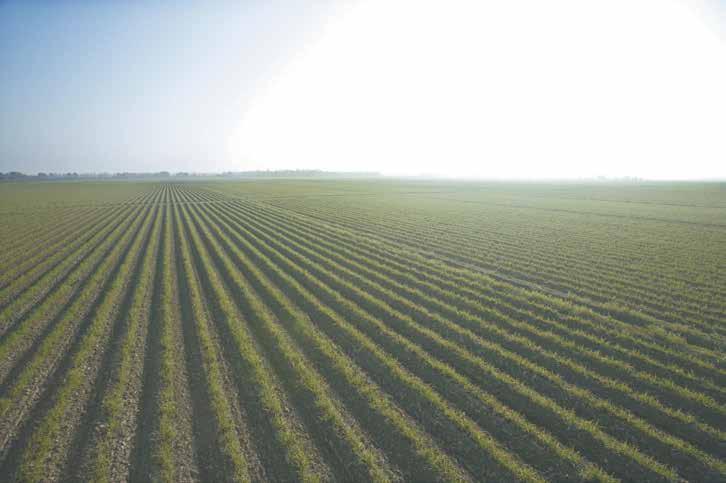


WWW.INTHEFIELDMAGAZINE.COM INTHEFIELD MAGAZINE May 2023 15 PAGE Gladstone Land is actively acquiring farms in Florida. We offer owners and farmers three options: 1. We buy farms and provide long-term leases to the farmer. 2. We buy land that farmers would like to farm, but not own. 3. We buy farms with leases in place or can be leased. Please contact Bill Frisbie at Gladstone Land: (571) 334-8403 bill.f@gladstoneland.com | www.GladstoneFarms.com WE BUY FARMS
CREATIVE COWBOY
By Libby Hopkins
Joshua McNamar of Plant City has been in the cattle business his entire life. “From Hillsborough County to Okeechobee, I’ve working with cattle,” McNamar said. “My in-law’s family had homesteaded in Plant City 100 years ago and they, too, were into cattle and farming. So, my wife and I both have farming background.”
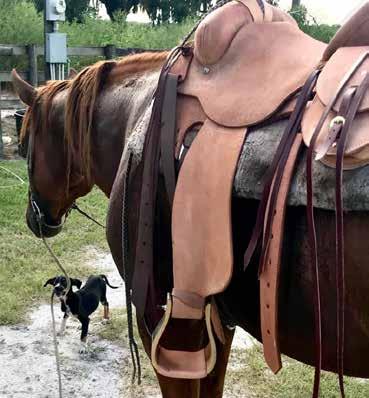
McNamar loves everything about being a cowboy. He loves how they work the land and cattle. “I get my inspiration for what I do from cowboys and being one as well.”
What McNamar does is make saddles. “I loved working on my saddle and fixing it,” McNamar said. “I decided to try and make a saddle and when I did, it got me! I started going down the path of being a saddle maker.”
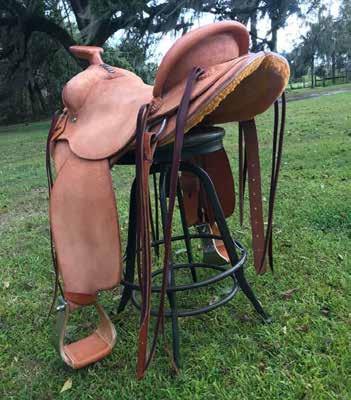
There is evidence, though disputed, that humans first began riding the horse not long after domestication, possibly as early as 4000 BC. The earliest known saddle-like equipment were fringed cloths or pads used by Assyrian cavalry around 700 BC. These were held on with a girth or surcingle that included breast straps and cruppers.
From the earliest depictions, saddles became status symbols. To show off an individual’s wealth and status, embellishments were added to saddles, including
elaborate sewing and leather work, precious metals such as gold, carvings of wood and horn, and other ornamentation.
Early solid-treed saddles were made of felt that covered a wooden frame. Chinese saddles are depicted among the cavalry horses in the Terracotta Army of the Qin dynasty, completed by 206 BC. Asian designs proliferated during China’s Han dynasty approximately 200 BC. One of the earliest solid-treed saddles in the Western world was the “four horn” design, first used by the Romans as early as the 1st century BC. Neither design had stirrups.
Saddles were improved upon during the Middle Ages, as knights needed saddles that were stronger and offered more support. The resulting saddle had a higher cantle and pommel (to prevent the rider from being unseated in warfare) and was built on a wooden tree that supported more weight from a rider with armor and weapons. This saddle, a predecessor to the modern Western saddle, was originally padded with wool or horsehair and covered in leather or textiles. It was later modified for cattle tending and bullfighting in addition to the continual development for use in war. Other saddles, derived from earlier, treeless designs, sometimes added solid trees to support stirrups, but were kept light for use by messengers and for horse racing.
WWW.INTHEFIELDMAGAZINE.COM INTHEFIELD MAGAZINE May 2023 16 PAGE
The saddle eventually branched off into different designs that became the modern English and Western saddles. In the Western world there are two basic types of saddles used today for horseback riding, usually called the English saddle and the “stock” saddle. The best known stock saddle is the American western saddle, followed by the Australian stock saddle. In Asia and throughout the world, there are numerous saddles of unique designs used by various nationalities and ethnic groups.
English saddles are used for English riding throughout the world, not just in England or English-speaking countries. They are the saddles used in the Olympic equestrian disciplines. The term English saddle encompasses several different styles of saddle, including those used for eventing, show jumping and hunt seat, dressage, saddle seat, horse racing, and polo. “My passion is ranch saddles,” McNamar said. “I’ve built saddles for senior women all the way down to kids who do barrel racing. I love making them and I love giving back to the ranch community when I make a saddle. Seeing ranches and what they do is amazing. It’s like everything they own is on their horse’s back. All they need is a horse, a good saddle and a dog. If their saddle breaks, they are out of commission.”
It takes McNamar about a month to make a saddle. “I usually work on two or three at a time, but the end product takes a month,” McNamar said. “I try to make them a reasonably priced too. Some makers charge $4000 to $5000 and I just can’t do that to my customers.”
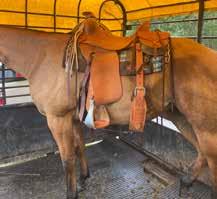
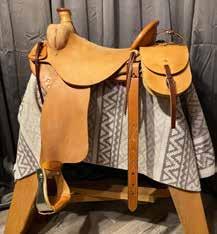
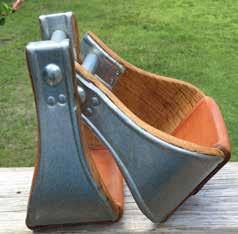
Keeping things local is also extremely important to McNamar. “All of my work comes from local residents,” McNamar said. “These local customers help me to make a living and provide for my family.”

If you would like to learn more about the saddles McNamar makes or if you’d like to hire him to make you a custom saddle, you can visit his Instagram page at @JBM_saddles, or his Facebook page at www.facebook. com/joshua.mcnamar.5

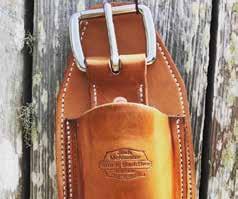
WWW.INTHEFIELDMAGAZINE.COM INTHEFIELD MAGAZINE May 2023 17 PAGE
Scammers - They’re Out There!
Capt. Woody Gore

Since the beginning of time, certain people have always looked for an easy way to steal money from other unsuspecting folks. Centuries ago, a wellknown con artist could fleece you out of your life saving and make you think he was doing you a favor. These charlatans would ramble into town, steal people's money and personal belongings, and flee out of town before anyone realized they were gone. Today it's gotten easier because they don't even have to meet you to steal your money. They're called scammers, and they are located all over the world. These cyber thieves use any means possible to gain your confidence and trust and then steal your money. It's happening every day, worldwide to thousands of unsuspecting folks just like us.
Here's a situation that happened to a friend of mine who happens to be a fishing guide here in Florida.
It started when he received an email from someone wanting to charter his guide service. They claimed to be coming from England and wanted to hire him for four full fishing days for four anglers. They agreed on a price and date set for four weeks away at the end of the month. The charter cost was $4,000.00 for the four full days of fishing. The Prospective client told the Captain they would mail him a cashier's check for the total amount.
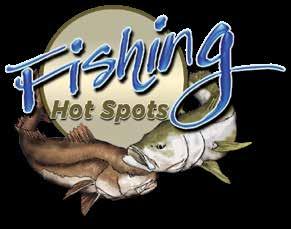
The client sent a Cashier's Check from Regions Bank in Tennessee via express mail to the Captain, which he deposited into his Wells Fargo bank account. Two days later, he received an email from the client indicating there had been a death in the family. The husband of one of the persons making the trip had suffered a heart attack and suddenly passed away. Because of this, unfortunately, they were not going to be able to make the trip. They were sorry for the inconvenience and wanted to know if they could get a refund of their monies? Because they needed money for funeral expenses right away, they were willing to allow the Captain to keep $2000 for his inconvenience if he would send the balance via an American Express Money Order right away.

To make their frauds work, scammers depend upon trust and gullibility. Not realizing it might be a scam and that he could still realize a profit, trustingly, the Captain had a money order made out for $2,000 and sent it off as requested. Three days later, his Wells Fargo bank sent him a letter informing him the cashier's check for $4,000 was invalid, and they deducted monies from his account. Unfortunately, once the Money Order was sent, this Captain was left holding the bag for $2,000 of his own money. And with no way to recover the funds sent via American Express Money Order. There are thousands of fraud cases registered with the FBI and the State of Florida.
Things to watch for:
• An offer to send a cashier's check for more than the purchase price
• Never send money back until you're sure it has cleared your bank

• Communication via odd-sounding email addresses

• If they are demanding fast payment or a refund
• It can often take months to clear all banks
• Verify the money order or check is valid. So how can you protect yourself from a phony check or money order? First, if it's for a relatively small amount like a oneday charter, ask for cash or a credit card number. If it's a long-distance transaction and you receive a cashier's check or money order, call the issuer it's drawn on and verify it's okay. Remember, never call the numbers printed on the check because scammers often have people answering those phone lines. Look up the bank's number yourself. If they insist on paying by cashier's check, you can have them use a bank with a local branch to ensure its valid. The U.S. Postal Service money orders are hard to beat for smaller amounts, although limited to $1,000. You can take it to a local post office or call the toll-free number to verify. Just use common sense when booking charters and making business decisions. The best thing is to remember that old saying: "If it sounds too good to be true, You can probably count on it not being true."
WWW.INTHEFIELDMAGAZINE.COM INTHEFIELD MAGAZINE May 2023 18 PAGE
Capt. Woody Gore (www.captainwoodygore.com)
Tampa Bay Fishing Report
Snook Look for Snook on tidal flats, especially those with deep channels or cuts. They forage the flats early and move toward the mangrove shade lines or deeper water as the sun heats up. Try using greenbacks or artificial lures on moving tides. Redfish: Expect some good redfish days around the same areas. Look for tailing reds or that familiar rusty red color on low water flats. They'll also begin pushing into the mangroves and oyster bars on incoming tides. Spotted Sea Trout: Normally, you can always catch trout on good grass flats throughout the summer. Look for fair-sized fish on the deeper grass flats with sandy potholes. Live shrimp or greenbacks under a popping cork should do nicely. Occasionally, free-lined baits in and around the sandy potholes produce larger fish and the occasional flounder. Tarpon: Tarpon fishing comes alive in June. They're all over the place, from the beach to the bays, hungry. Threadfins, greenbacks, and crabs are abundant, and tarpon is there to eat.
“Give Me a Call & Let’s Go Fishing”
813-477-3814

Capt. Woody Gore operates Tampa Bay’s #1 Outdoor Fishing Guide Services. Guiding and fishing in Tampa, St. Petersburg, and Clearwater areas for over sixty years. He offers first-class customer service, family-oriented charters, and a lifetime of memories.


Single or Multi-boat Group Charters are all the same. With years of organizational experience and access to the area’s most experienced captains, Capt. Woody can arrange and coordinate any outing or tournament. Website at: WWW.CAPTAINWOODYGORE.COM, email wgore@ix.netcom.com, or call at 813-477-3814.
Member: FOWA-Florida Outdoor Writers Assoc., Member-SEOPA Southeastern Outdoor Press Assoc. CEO/Pres. Sport-Fishing Unlimited & Outdoor Communications, Outdoor Writer & Speaker


WWW.INTHEFIELDMAGAZINE.COM INTHEFIELD MAGAZINE May 2023 19 PAGE
Capt. Mark Gore put a client on a monster snook. First cast out of the boat.
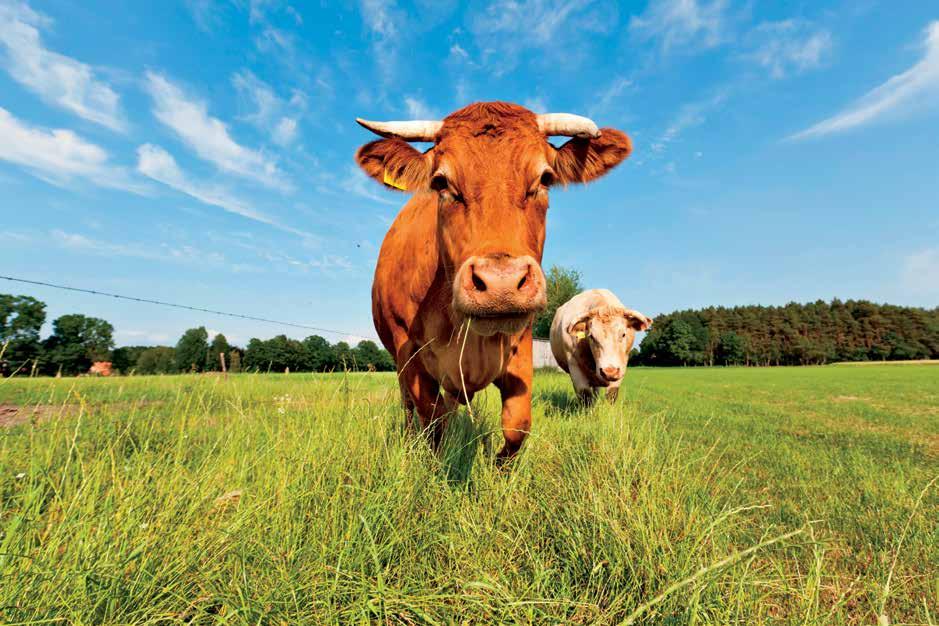
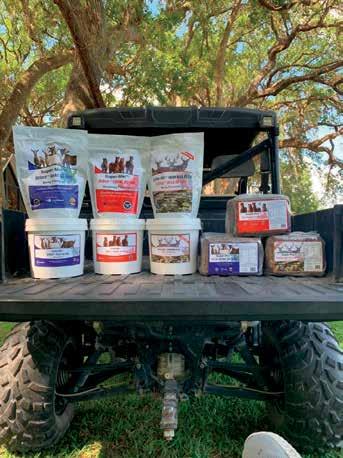




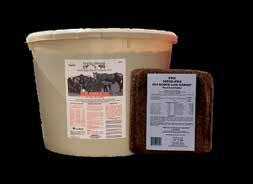


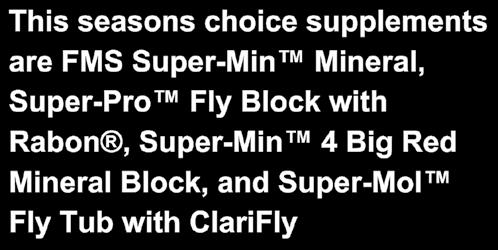
WWW.INTHEFIELDMAGAZINE.COM 20 PAGE N E W P R O D U C T S , N O W A V A I L A B L E O N L I N E Contains Ammonium Chloride Made for all classes of goat Available in 8lb pouch and 20lb pail 25lb Super-Pro™ Blocks S U P E R - M I N ™ G O G R O ™ G O A T G 2 - V M S S U P E R - M I N ™ G O G R O ™ E Q U I N E G 2 - V M S S U P E R - M I N ™ H O R N M A X P L U S G O G R O ™ D E E R G 2 - V M S Complete B-Vitamin Package For Working, Pleasure and Gestating Horses Available in 8lb pouch and 20lb pail 25lb Super-Pro™ Blocks Vitamin-Mineral-Supplement PLUS Phosphorus for Larger Bucks and Bigger Racks Available in 8lb pouch and 20lb pail 25lb Super-Pro™ Blocks WWW FLORIDAMINERAL COM GIVE US A CALL AND LET US EARN YOUR BUSINESS! TOLL FREE 800-741-5450 INFO@FMSAP.COM @floridamineral Greg Clark 813-765-4557
“We
Auto Services
(813) 689 - 8255
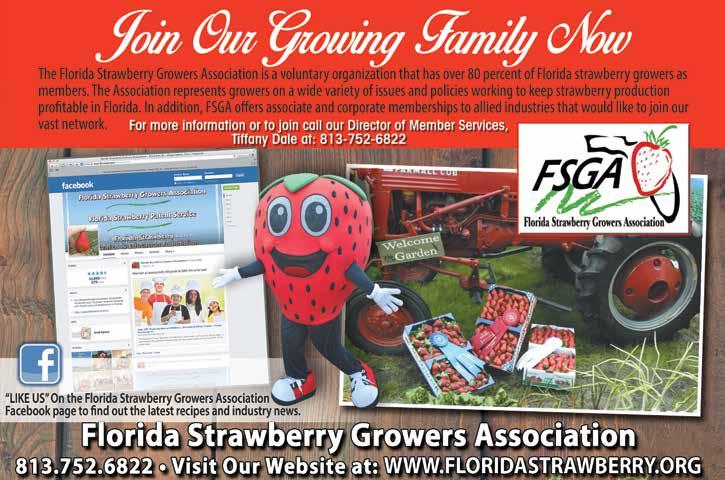
3159 Hwy. 60 East 3 miles east of Brandon Serving Brandon Since 1971 www.brandonautoservices.com
There are about nine chickens for every human being in the world.
Nolan Bushnell founded Atari and Chuck E. Cheese.
The mango is the most popular fruit on Earth, consumed worldwide by a factor of three to one over bananas and ten to one over apples.
Kool-Aid was once marketed as Fruit Smack.

7-Up was first marketed as Bib-Label Lithiated Lemon-Lime Soda.
Austin, Texas was first named Waterloo.
The tortoise can live to be 140 years old.
Dead skin cells make up about 90% of all household dust.
WWW.INTHEFIELDMAGAZINE.COM INTHEFIELD MAGAZINE May 2023 21 PAGE
Are A FULL SERVICE Garage”
• Body Shop
Used / Reman Transmission • Engine Diagnostic / Tune Up • Maintenance/Repairs • CV Axles • Drive Shafts • AC Repair • Alternator / Starter • Brakes Inc. GUARANTEED USED PARTS
Large selection of Used Tires
New and Used Glass Installed 2 Year Part Replacement & Labor Guarantee!
•
•
•
YOUR AROUND TOWN SPONSOR

A young Naval Officer was in a terrible auto accident. Due to the heroics of a hospital staff the only permanent injury was the loss of one ear. Since he wasn’t physically impaired, he remained in the Navy and eventually became an Admiral. However, throughout his career, he was always sensitive about his appearance.
One day the Admiral was interviewing two Navy Master Chiefs and a Marine Sergeant Major for a position on his personal staff. The first Master Chief was a surface Navy type. It was a great interview. At the end of the interview the Admiral asked him, “Do you notice anything different about me Master Chief?” The Master Chief answered, “Why yes sir, I couldn’t help but notice you are missing your starboard ear, and I have been wondering to myself whether this impacts your hearing on that side.” The Admiral got very angry at this lack of tact and threw him out of his office.
The next candidate was an Aviation Master Chief. After a very good interview, the Admiral concluded by asking this same question. The Master Chief answered, “Well yes sir, I noticed you seem to be short
one ear.” Again, the Admiral was incensed by his lack of tact, and threw him out also.
The third interview was with the Marine Sergeant Major. He appeared to be articulate, extremely sharp, and seemed to know more about current events than the two Master Chiefs before him. The Admiral decided that he wanted this Marine on his staff, but to be totally fair he asked the Sergeant Major the same question he had asked the two Master Chiefs. The Admiral said, “Sergeant Major, do you notice anything different about me?” To his surprise, the Sergeant Major said, “Yes sir. You wear contact lenses.” The Admiral was impressed, and thought to himself, what an incredibly tactful man. “And how do you know that?” the Admiral asked. The Sergeant Major asked, “Well sir, it’s pretty hard to wear glasses with only one ear.
The Admiral hired the Sergeant Major on the Spot.
You just have to love the Marines. A large group of ISIS fighters in Iraq were moving down a road, when they hear the voice of an American from behind a
WWW.INTHEFIELDMAGAZINE.COM INTHEFIELD MAGAZINE May 2023 22 PAGE
Sponsored by:
HOPEWELLFUNERAL.COM FAMILY OWNED AND OPERATED SINCE 1971
Editor’s Note: This Rocking Chair Chatter was originally printed in the May 2019 issue
sand dune, “Hey you dummies! One Marine is better than ten wimpy ISIS fighters!” The ISIS commander quickly orders 10 of his best men over the sand dune, where a gun battle breaks out and continues for a few minutes. After a minute of silence, the voice calls out again, “One Marine is better than one hundred of you ISIS scumbags!” Furious, the ISIS commander sends his next best 100 troops over the dune and a huge gunfight breaks out. After 10 minutes of battle, there is again silence, until the voice calls out again, “One Marine is better than a thousand ISIS fighters.” The enraged ISIS commander musters 1,000 fighters and sends them to the other side of the dune. Rifle fire, machine guns, grenades, rockets and cannon fire ring out as a terrible fight is fought … then silence. Eventually, one badly wounded ISIS fighter crawls back over the dune and with his dying words tells his commander, “Don’t send any more men … it’s a trap. There’s not just one marine over there….there’s two.”
Four strangers traveled together in the same compartment of a European train. Two men and two women faced each other. One woman was a very wealthy and sophisticated 70-year-old lady who was decked out in the finest of furs and jewelry. Next to her sat a beautiful young woman, 19 years old, who looked like something right off the cover of a fashion magazine. Across from the older lady was a very mature looking man in his mid-forties who was a highly decorated Sergeant Major in the Army. Next to the Sergeant Major sat a young private fresh out of boot camp.
As these four strangers traveled, they talked and chatted about trivial things until they entered an unlighted tunnel, and there they sat in complete darkness and total silence, until the sound of a distinct kiss broke the silence; following the kiss a loud slap could be heard throughout the cabin.
In the ensuing period of silence the four strangers sat quietly with their own thoughts.

The older lady was thinking, “Isn’t it wonderful that even in this permissive day and age there are still young women who have a little self-respect and dignity?”
The young woman, shaking her head and greatly puzzled, asked herself, “Why in the world would any man in his right mind want to kiss an old fossil like that when I’m sitting here?”
The Sergeant Major, rubbing his sore face, was outraged that any woman could ever think that a man in his position would try to sneak a kiss in the dark.
The private, grinning from ear to ear, was thinking, “What a wonderful world this is when a private can kiss the back of his hand and then smack a Sergeant Major in the face and get away with it!”
WWW.INTHEFIELDMAGAZINE.COM INTHEFIELD MAGAZINE May 2023 23 PAGE
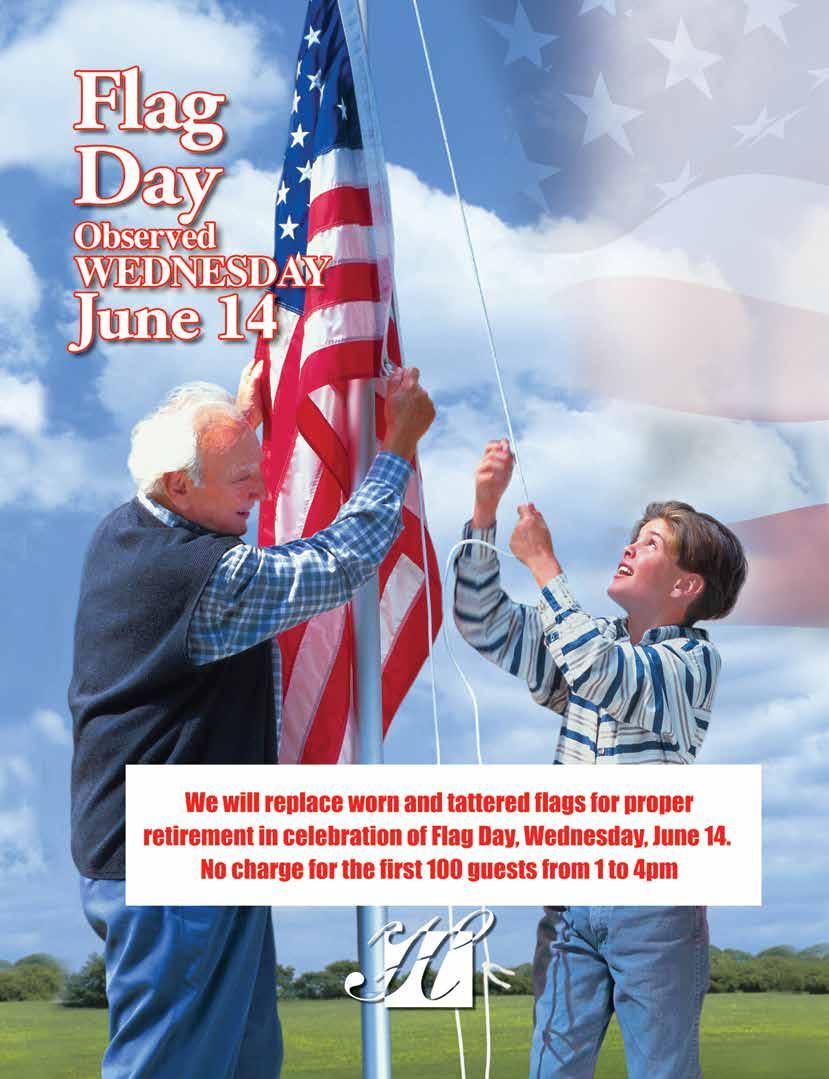

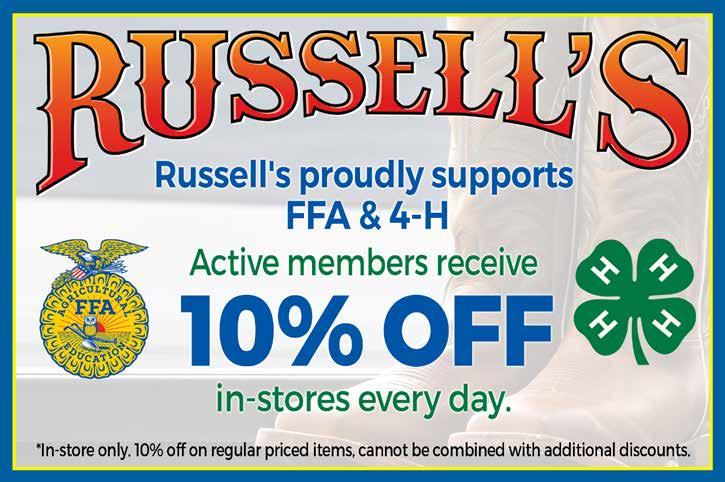

WWW.INTHEFIELDMAGAZINE.COM INTHEFIELD MAGAZINE May 2023 26 PAGE
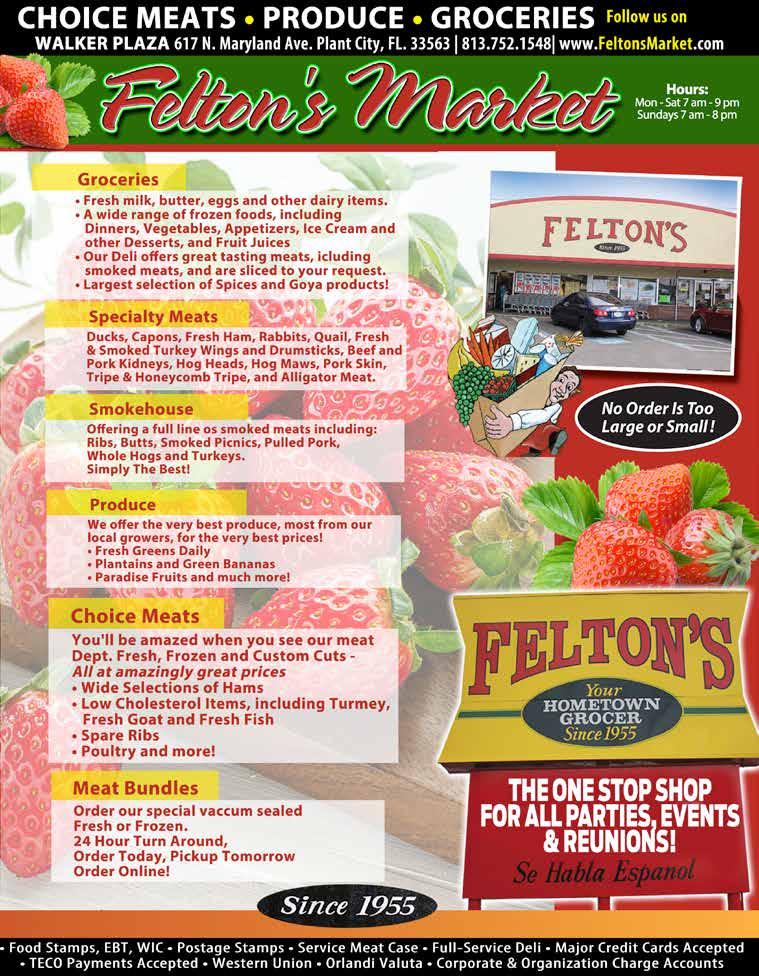
WWW.INTHEFIELDMAGAZINE.COM INTHEFIELD MAGAZINE May 2023 27 PAGE
HIGH COLOR, LOW-MAINTENANCE AND DROUGHT-TOLERANT SHRUBS, VINES AND GRASSES
 By Lynn Barber, Florida-Friendly Landscaping™ Agent Hillsborough County and UF/IFAS Extension
By Lynn Barber, Florida-Friendly Landscaping™ Agent Hillsborough County and UF/IFAS Extension
For those of us around Florida that enjoy a large amount of color in our landscapes but have little time to maintain what we plant, this topic is timely because we have some time before the rainy season starts.
Consider the first principle of the Florida-Friendly LandscapingTM Program, which is Right Plant - Right Place, as it relates to your plant selections and site conditions.

We are defining high color as foliage and flowers for several seasons. Low maintenance means minimal pruning, fertilizing and pest control. Try walking around your landscape at least once a week to check on the condition of your plants and proceed as needed.
Large shrubs: Aloysia virgata - Sweet almond bush can reach a height and spread of 6 to 12 feet. This shrub prefers full sun, tolerates drought well, attracts butterflies and produces white, fragrant flowers from summer through fall. Brunfelsia grandiflora - Callicarpa americana – Beautyberry (native) can reach a height and spread of 6 to 8 feet. Beautyberry prefers shade to partial shade and has a high drought-tolerance. This shrub produces purple to light-purple flowers from spring through fall and small purplish
fruits that provide food for wildlife in later winter. There is also a White Beautyberry (Callicarpa americana Var. lactea).
Small shrubs: Lantana depressa - Weeping lantana, Pineland lantana (native) can reach a height and spread of 3 to 6 feet. This shrub has medium drought and high salt tolerance and prefers full sun and attracts butterflies and birds. This small shrub produces small yellow, year-round flowers; however, the berries are poisonous. Russelia sarmentosa - Firecracker plant can reach a height of 3 to 4 feet and spread of 2 to 4 feet. It is fast growing, has medium drought tolerance and prefers full sun. Butterflies and hummingbirds are attracted to this plant, which produces red, summer flowers. Yellow and salmon forms are also available.
Vines: Thunbergia alata – Black-eyed Susan vine can reach a height and spread of 5 to 10 feet. This vine prefers full sun and has low drought tolerance. It is a perennial that produces yellow summer flowers. Ipomoea spp. - Morning glory (natives only) can reach a height of 10 to 20 feet and spread of 10 to 40 feet. It is fast-growing, prefers full sun and has high drought tolerance. Flower color varies. This vine spreads easily and provides food for wildlife.
WWW.INTHEFIELDMAGAZINE.COM INTHEFIELD MAGAZINE May 2023 28 PAGE
Firecracker plant, Courtesy of UF
Grasses: Muhlenbergia capillaris - Muhly grass (native) can reach a height of 2 to 5 feet and spread of 2 to 3 feet. This grass has high drought tolerance and performs best in full sun, producing pink, fall flowers. Eragrostis elliottii – Elliott’s lovegrass (native) can reach a height and spread of 1 to 3 feet and is fast growing. This grass has high drought tolerance, prefers full sun ranging to partial shade. It produces tan, year-round flowers, especially in the fall.
Many UF/IFAS Extension offices have teaching/ demonstration gardens where you can see these plants and many others in a landscape setting. Hopefully, that will make your plant selection decisions easier! For horticultural assistance, contact the UF/IFAS Extension office in your county. Contact Lynn Barber at labarber@ufl.edu.
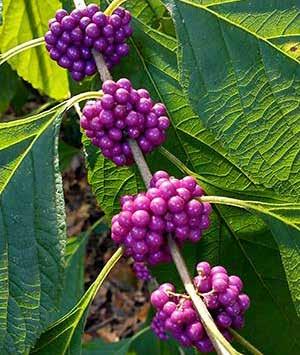
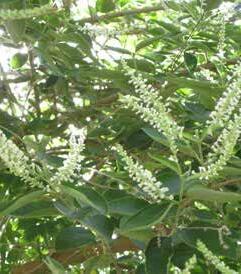
Branch Forbes Road Investment, Plant City, FL 19.48± Acres

Excellent investment opportunity to own 19.84± acres, just 350± feet from Exit 17 off Interstate 4. The property is located on the SE corner of the first intersection off I-4, featuring 1,307± feet of frontage on Branch Forbes Road and 633± feet on Beauchamp Road. Currently zoned AS-1 with a future land use of NMU-4 (Neighborhood Mixed Use), adjoining LI-P (Light Industrial Planned).

Sale Price: $2,000,000
Reed Fischbach,
Dorman Road Homesite, Lithia, FL 2.8± Acres
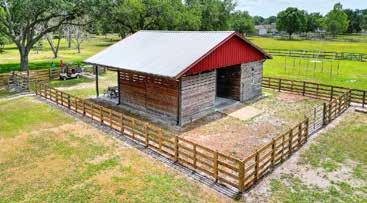
Prime Location, Pristine Condition and Picture-Perfect Setting! This 3± acre Lithia Homesite is truly an amazing find. With thriving pastures already fenced and cross-fenced, a 3-stall horse barn and a safe and sturdy chicken coop. Just minutes away from FishHawk schools and shopping, you’ll enjoy the country sunsets only a stone’s-throw from the conveniences of town.
Sale Price: $350,000
Blaise Lelaulu,
WWW.INTHEFIELDMAGAZINE.COM INTHEFIELD MAGAZINE May 2023 29 PAGE
Sweet almond bush, Courtesy of Lynn Barber
Fischbach Land Company 917 S Parsons Avenue Brandon, FL 3351 Information provided on properties is as accurate as possible. Fischbach Land Company does not guarantee the accuracy thereof. All parties shall conduct their own due diligence, research, inspection, and records to come to their own conclusions. 813-540-1000 FischbachLandCompany.com Florida Land Agriculture, Development, Commercial, Industrial, Country Estates Real Estate Brokerage Services Since 2008
Licensed Real Estate Broker
Licensed Real Estate Associate
Licensed Real Estate Associate
Beautyberry Courtesy of UF
Melissa Raburn,
Ad-InTheField MAY2023.indd 1 5/4/23 12:22 PM
NEWS BRIEFS

can apply through NRCS at the local USDA Service Center, Hillsborough County Farm Service Agency, 201 South Collins Street, Suite 201, Plant City, 33563. Telephone: 813/752-1474, Ext. 2.
Florida-Friendly Landscaping™ Celebrates 30 Years of Service

For 30 years, Florida-Friendly Landscaping™ (FFL) has provided Florida residents with sustainable alternatives to “conventional” landscaping in all Florida counties. FFL provides tips for low impact, environmentally friendly, science-based landscape practices that use less water and reduce pollutant loading to Florida waters.
For more information on FFL, visit the Hillsborough office of the University of Florida Institute of Food and Agricultural Sciences (UF/IFAS) Extension office at 5339 County Road 579. Seffner, FL 33584 or hillsborough@ifas.ufl.edu.
Extension Thanks Volunteers Welcomes New Members
Community members in every Florida county have access to year-round assistance in gardening, youth programming, home management and other needs – thanks to the University of Florida Institute of Food and Agricultural Sciences (UF/ IFAS). Behind many of these programs is a strong network of volunteers who offer their time and expertise as Master Gardeners, 4-H leaders and Master Money Mentors. They play a vital role in fulfilling Extension’s commitment to the community, for which UF/IFAS is truly appreciative.
If you have an interest in helping your community through Extension programs, contact: hillsborough@ifas.ufl.edu. 5339 County Road 579, Seffner, FL 33584. Telephone: 813/7445519.
Five Hillsborough County Communities to Benefit from Broadband Opportunity Program
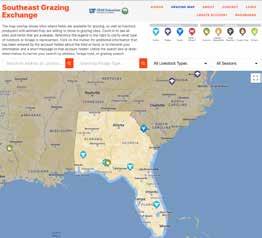
The second round of awards funding through Florida’s Broadband Opportunity Program will provide expanded Internet access to Plant City, Balm, Keysville, Lithia and Wimauma with a total of 122.8 miles of fiber optic cable to existing networks. This addition will bring symmetrical download and upload speeds of 1 gigabyte to 1.782 unserved locations in the county.
USDA Assisting Producers Transitioning to Organic Production

The U.S. Department of Agriculture (USDA) Natural Resources Conservation Service (NRCS) is investing $75 million to help producers transitioning to organic production. As part of the multi-agency Organic Transition Initiative (OTI), NRCS will dedicate financial and technical assistance to a new organic management standard and partner with new organic technical experts to increase staff capacity and expertise.
NRCS will dedicate $70 million to assist producers with a new organic management standard under the Environmental Quality Incentives Program (EQIP) and $5 million to partner with six organic technical experts through five-year agreements. The organic experts will develop regional networks and support NRCS staff that provides services to USDA customers. NRCS will help producers adopt the new organic management standard, which allows flexibility for producers to get the assistance and they need such as attending workshops or requesting help from experts or mentors.
Eligible producers include farmers, ranchers, forest landowners and other producers beginning or in the process of transitioning to organic certification. NRCS will announce state-specific deadlines later this year, after which producers
New, Free Service Connects Ranchers with Livestock and Farmers with Grazing Space
The Southeast Grazing Exchange, funded by the Florida Department of Agriculture and Consumer Services’ (FDACS) Office of Agricultural Water Policy, is free to users and seeks registrants with all livestock and field types from Alabama, Florida and Georgia. More information and registration is available at: southeastgrazingexchange.com.
WWW.INTHEFIELDMAGAZINE.COM INTHEFIELD MAGAZINE May 2023 30 PAGE
Compiled by Jim Frankowiak
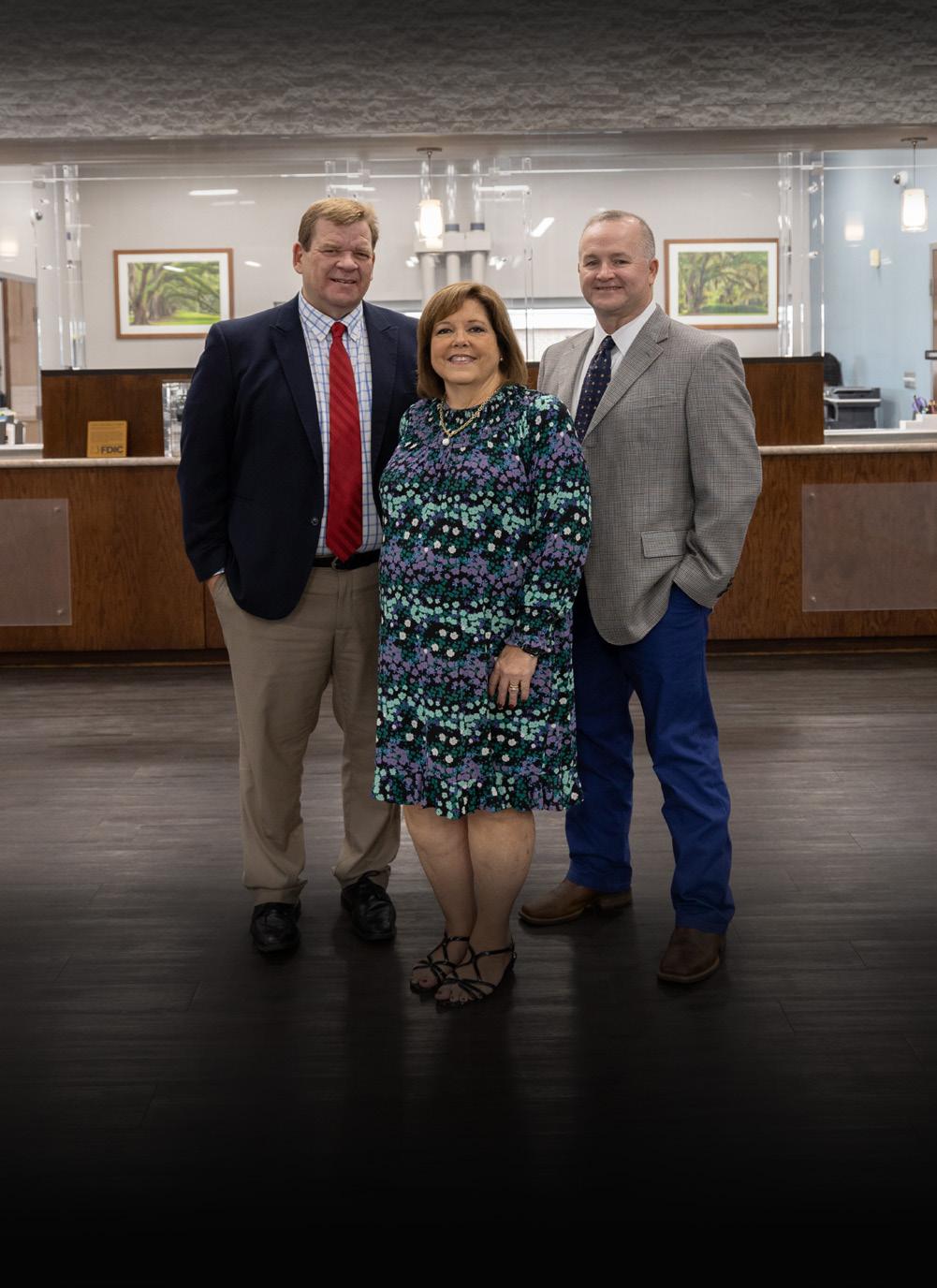

WWW.INTHEFIELDMAGAZINE.COM INTHEFIELD MAGAZINE May 2023 31 PAGE Member FDIC 509 W ALEXANDER ST. | PLANT CITY, FL | 33563 Committed to Plant City. Staffed with bankers who have deep roots in the Plant City area, our bank’s focus for over 38 years has been to serve owner-managed businesses, professional firms, and families that want a strong, local connection with their bank and banker. Come grow with us. 813.707.6506 thebankoftampa.com
Water Apathy – WAPATHY
April was Water Conservation Month in Hillsborough County. Some things in life we take for granted, like water. We drink it, cook with it, shower with it and use water to irrigate our landscapes. Approximately 50% of the water we use is for landscape irrigation. Lawns and landscapes need ½ - ¾ inch of water per application. Using more is wasting water.
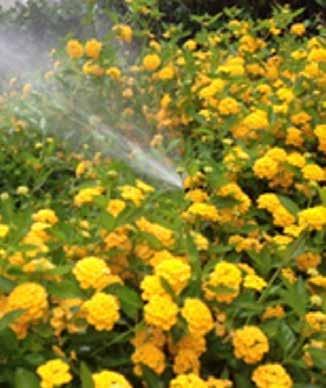
Many times, it appears we have become WAPATHETIC – apathetic about water. As you know, apathy means lack of emotion or interest. We may over-irrigate our lawns and landscapes; then wonder why there is an increase in pests, diseases, weeds and non-surviving plants. We may have a well and think there is an unlimited source of water. Maybe our rain shutoff device (required by law to be installed and functioning) is no longer in working order. There are several types of rain shut-off devices. Some are more effective and efficient than others.
The average life expectan cy of a rain shut-off device is approximately 1-5 years. The internal cork-like mechanism that swells from rainfall overrides the irrigation system when the setting for rainfall has been reached. When the internal component deteriorates, the shut-off device is inoperative.
There are easy ways to check the rain shut-off device to be sure it is functioning.
1. If your irrigation system runs when more than ½ - ¾ inch of rain has fallen, the device may need to be reset to ½ - ¾ inch, or you may need to contact a Florida Irrigation Society certified contractor*.

2. If your rain shut-off device is located under trees, your
eaves or other obstructions, the device cannot operate properly.
3. If you have a wired versus wireless rain shutoff device and the wire is not connected to the control box or is cut, it cannot work properly.
* Contact a certified irrigation contractor to evaluate your shut-off device to be sure it is functioning correctly.
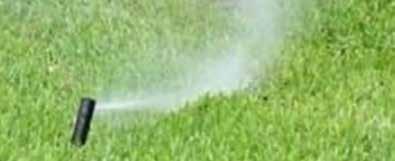
Paula Staples, UF/IFAS Extension Hillsborough County, is available to talk with you about your irrigation water use. She and others on our team work closely with high water users, defined as 15,000 gallons a month or more. You can contact Paula at: staplesp@hillsboroughcounty.org or 813-744-5519 x 54142. Paula says: “Everyone can conserve irrigation water. By using a rain gauge to balance supplemental irrigation with the rainfall you receive can reduce your water use and keep your plants healthy.”
All of us have many opportunities to use water responsibly. There is an OFF position on your irrigation controller. It works well for me….and could for you. It’s easy to turn on when needed. If you are interested in finding other ways to conserve water in your landscape, attend a rainwater harvesting or microirrigation workshop at the UF/IFAS Extension Hillsborough County. We offer these classes to Hillsborough County residents one Saturday each month from February through November and occasionally during the week. View our calendar of events at: https://sfyl.ifas.ufl.edu/hillsborough/ upcoming-events/. You can attend in person or via Zoom. Let’s all save water, time and money.
Contact Lynn Barber at: labarber@ufl.edu
WWW.INTHEFIELDMAGAZINE.COM INTHEFIELD MAGAZINE May 2023 32 PAGE
Lynn Barber, UF/IFAS Extension Hillsborough County
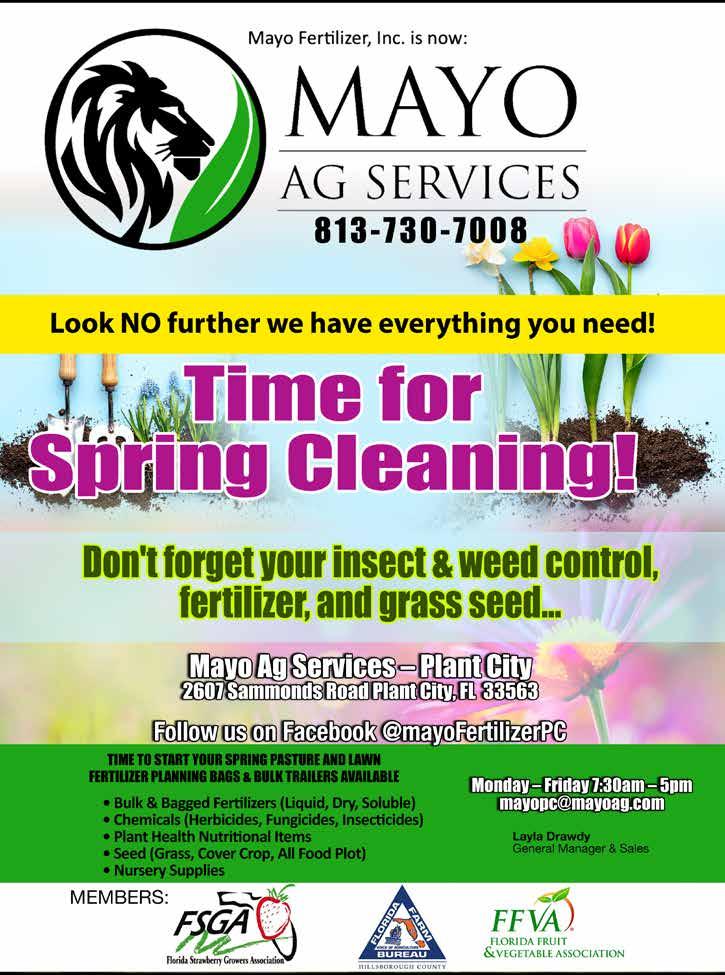
WWW.INTHEFIELDMAGAZINE.COM INTHEFIELD MAGAZINE May 2023 33 PAGE

WWW.INTHEFIELDMAGAZINE.COM INTHEFIELD MAGAZINE May 2023 34 PAGE
SUMMER SQUASH
By Sandy Sun, M.S. Clinical Medicines, B.S. Nutrition Science
Summer squash is used to describe squash that have a thin, edible skin. The most common types grown in Florida include zucchini, yellow squash, crookneck, and pattypan. Summer squash is grown throughout the year, depending on region. Most of the zucchini grown for market in Florida are grown in the north and central parts of the state, while most of the yellow squash grown for the commercial market comes from the central and southern parts of Florida.
According to the Florida Department of Agriculture and Consumer Services, Florida leads the nation in fresh market sales of summer squash. Of Florida’s vegetable crops, squash is ranked sixth in number of harvested acres and seventh in total value, as of 2005. Florida squash is shipped to other states almost every month of the year.
Most of the summer squash have a very mild, sweet flavor and tender texture. The skin, seeds, and flesh are entirely edible. In fact, most of the nutrients and fiber are found in the colorful skin, and should be eaten unpeeled to reap the full nutritional benefit. Because over 90 percent of squash is water, this vegetable is also a great way to meet your daily fluid requirements.
NUTRITIONAL PROFILE
Summer squash as an excellent source of manganese and vitamin C and a very good source of magnesium, vitamin A, fiber, potassium, folate, copper, riboflavin, and phosphorus. This diet friendly vegetable is very low in calories, with less than 30 calories in an entire cup.

According to the United States Department of Agriculture (USDA) National Nutrient Database for Standard Reference, one cup of cooked, sliced summer squash (180 g) contains 29 calories, 1.15 g protein, 0.09 g fat, 7.07 g carbohydrate, and 2.5 g of dietary fiber. It also provides 19% of the Daily Recommended Value (%DV) for manganese, 17% for vitamin C, 10% for dietary fiber, and plentiful amounts of other valuable nutrients.
Many of the nutrients in squash work together to be a very heart-healthy food. The magnesium in squash has been shown to reduce the risk of heart attack and stroke. Both magnesium and potassium help to reduce high blood pressure. The vitamin C and beta-carotene found in summer squash can help to prevent cholesterol buildup in the arteries, which can lead to atherosclerosis and heart disease. Additionally, the fiber found in squash has been shown to lower high cholesterol levels and regulate blood sugar levels, which reduces the risk of heart disease and diabetes.
Vitamin C: Boost your immune system
With less than 30 calories per cup, one serving of summer squash can meet 20% of your daily vitamin C needs. This vitamin is important for a healthy immune system, cancer prevention, healthy blood circulation and wound healing. This vitamin acts as a potent antioxidant in the body, neutralizing harmful free radicals and preventing its damaging effects in cells. By fighting cell and tissue damage, vitamin C protects against cancer and other diseases, such as the common cold. This vitamin also enhances iron absorption from other foods, which reduces the risk of anemia. Additionally it aids in the development and maintenance of healthy capillaries, gums, and skin, as well as strong bones and teeth.
Vitamin A: Boost your vision
Vitamin A (in the form of beta-carotene) is essential for optimal eye health and can help prevent night-blindness. This antioxidant also plays a role in immunity by supporting the white blood cells in fighting infections. This vitamin is also involved in hearing, taste, and normal fetal development. Zucchini is considered a very good source of this important nutrient.
Both vitamin A and vitamin C also have anti-inflammatory properties that make them helpful for protecting against conditions such as asthma, osteoarthritis, and rheumatoid arthritis, where inflammation plays a big role.
Fiber: Boost your digestion
Research has shown that dietary fiber has a protective effect against cardiovascular diseases by lowering blood cholesterol levels and slowing the progression of heart disease in highrisk individuals. Fiber also assists with digestion and prevents constipation.
As with many other vegetables, summer squash contains a significant amount of dietary fiber, which can help with weight loss by helping you stay full with very few calories. According to the American Institute for Cancer Research, a diet high in fiber may decrease the risk of several types of cancer including colon, rectum, breast, and pancreas.
How to Select and Store
When shopping, choose squash that are small and feel heavy for their size. Look for firm, shiny skin free of nicks, bruises, and soft spots. The edible skin is fragile and should be handled carefully. Summer squash can be stored for about one week in the refrigerator, and should be kept unwashed until just before use.
How to Enjoy
Because of its mild flavor and pleasant texture, squash is very versatile and can be eaten in almost any way imaginable! It can be eaten raw, grilled, baked, stir-fried, deep-fried, boiled, steamed, sautéed, or roasted. It can be incorporated into egg omelets, breads, muffins, soufflés. The zucchini flowers are also edible and can be stuffed or fried. Summer squash is widely enjoyed in many cuisines, including Italian, French, Greek and Turkish dishes. Some ways to enjoy squash include:
• Spiralize or shred squash for a pasta substitute
• Shred raw zucchini and add to salads
• Cut raw zucchini into strips and serve in a platter of crudites
• Steam and season with fresh herbs or tomato sauce
• Stuff with vegetables or rice and bake
• Slice and add to soups or stews
• Shred and add to egg omelets or pancakes
• Add shredded zucchini into muffin or cake batter Enjoy fresh delicious Florida squash today. With its mild flavor and high nutrient content, summer squash is a great choice all year long.
SELECTED REFERENCES
http://www.whfoods.com
http://www.florida-agriculture.com
WWW.INTHEFIELDMAGAZINE.COM INTHEFIELD MAGAZINE May 2023 35 PAGE
HILLSBOROUGH SOIL AND WATER CONSERVATION
DISTRICT LOBBIES FOR 2023 FARM BILL IN D.C. AND ADOPTS
POSITION STATEMENTHOME TOWN CHAMPION
Climate disruptions, droughts, wildfires, invasive species, ravaging diseases, pollinator losses and increased input costs for virtually every aspect of production are just a few of the challenges faced by Florida and America’s farmers, ranchers and growers on a daily basis. American agriculture serves to feed not only this country, but much of the world through technological advances and enhanced conservation programs.
In late March HSWCD Chair Mark Proctor, Treasurer Myke Morris and Executive Director Betty Jo Tompkins traveled to Washington, DC to participate in the National Association of Conservation Districts fly-in to lobby for agriculture and conservation funding for the 2023 Farm Bill. The message they presented was clear: food and water represent the ultimate in national security and must be protected at all costs.
As the U.S. Farm Bill, up for adoption every five years, will be passed by the United States Congress in 2023, it is essential that critical conservation elements receive maximum attention and consideration within these deliberations. Funding for conservation programs must be increased to reflect growing agricultural concerns, as two of every three entities requesting assistance are currently denied because of inadequate funds.
While in DC, the Hillsborough delegation met with Congresswomen Laurel Lee (R- FL 15), Kat Cammack (R- FL 3), Congressmen Gus Bilirakis (R- FL 12), Dan Crenshaw (R- TX 2), as well as staff from the Congressional Offices of Representatives Kathy Castor (D- FL 14), Scott Franklin (R- FL 18), Anna Paulina Luna (R- FL 13), Darren Soto (D- FL 9), Vern Buchanan (R-FL 16), Lee and Bilirakis.

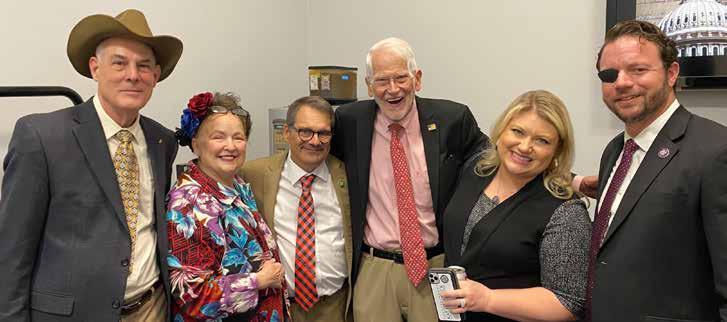
Upon their return from Washington, the entire HSWCD Board adopted a position statement encouraging all conservation districts in Florida to proactively contact their congressional delegation members and encourage other community leaders to also do so. Conservation projects are not cosmetic, but an essential element to help maximum agricultural production and output. An investment of 1.2 billion for conservation
operations through NRCS is necessary to ensure the viability of programs such as conservation technical assistance, soil surveys, snow surveys, water supply forecasting and plant materials centers. Funds are also critical for watershed programs, the USDA’s Forest Service and the Environmental Protection Agency. The current Farm Bill devotes 83% of its funding to supplemental food programs, with only 17% going to agriculture and conservation.
Since its very inception, the conservation movement has been based on locally led, volunteer initiatives, with programs designed to meet the unique needs of America’s almost 3,000 Conservation Districts. This approach, rather than a “one size fits all” continues to be effective today.
The Hillsborough Soil and Water Conservation District operates under the belief that “Conservation is Everybody’s Business” and provides services to inner-city, urban, and suburban, as well as rural communities. For further details on the Farm Bill, as well as general conservation information call HSWCD Executive Director Betty Jo Tompkins: (813) 477.8332, visit: Hillsboroughswcd.com or the National Association of Conservation District’s website at https://www.nacdnet.org/.
WWW.INTHEFIELDMAGAZINE.COM INTHEFIELD MAGAZINE May 2023 36 PAGE

WWW.INTHEFIELDMAGAZINE.COM INTHEFIELD MAGAZINE May 2023 37 PAGE
Florida Friendly-Landscaping™ Celebrates 30 years
By Tory Moore
For 30 years, Florida’s premier landscaping program has helped improve the environment and keep yards beautiful. The nine principles of Florida-Friendly Landscaping™ provide landscaping recommendations that use less water, attract wildlife and reduce pollution to Florida waterways.
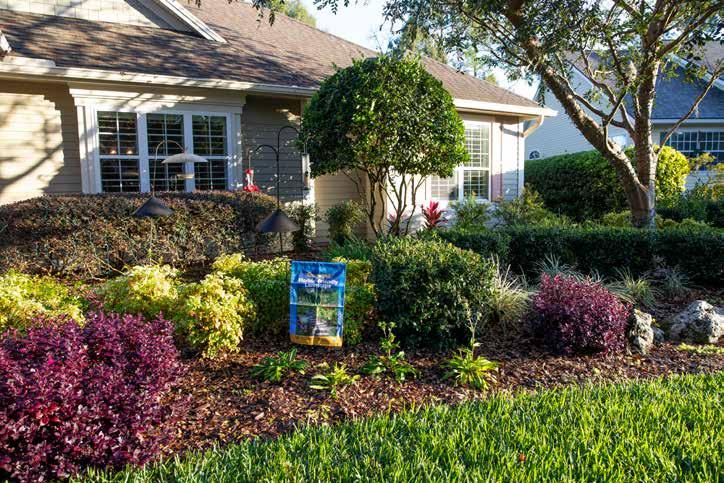
“FFL is a holistic way of looking at the landscape,” said Tom Wichman, FFL program assistant director. “It’s based on nine science-based core principles developed 30 years ago that look at the entirety of the landscape. From how it’s designed to how it’s managed, it encompasses everything.”
With support from the Florida Department of Environmental Protection, 93 UF/IFAS Extension agents in 67 counties deliver FFL education.
In 2022, the FFL program saved more than an estimated 340 million gallons of water, and 105,000 people par-
ticipated in FFL-related water conservation programs. When it comes to nutrient pollution in our waterways, the program was estimated to have saved 119,564 pounds of nitrogen from entering Florida waterways in 2021.
The program is a success in part due to the efforts of the UF/IFAS Extension agents that provide researchbased information to their communities.
“The passion and skill of agents across the state is what has allowed this program to prosper and continue to grow,” said Wichman. “Their commitment and the partnership with FDEP is what has allowed this program to thrive.”
One of the program’s greatest claims to fame is the recent television show featuring FFL principles, “Flip My Florida Yard.” Each episode documents a yard makeover for a Florida family. In 8 hours, their landscape is
WWW.INTHEFIELDMAGAZINE.COM INTHEFIELD MAGAZINE May 2023 38 PAGE
turned into a Florida-Friendly oasis. Now in its third season, the show continues to grow in popularity and raise awareness of the FFL principles.
The show, free online resources and local Extension expertise are available to help people integrate Florida-Friendly principles into their yards, but FFL continues to find ways to make sure resources and tips to get started are accessible for all.

“Transforming your landscape can be daunting at first if you don’t know where to start,” Wichman said. “Most people in Florida are coming from somewhere else. The climate in Florida is so different than anywhere else in the country and they need Florida-specific information. We have experts to help get you started.”
New for 2023, residents can take the FFL pledge and make a concerted effort to implement at least one or more behaviors to make your yard more FloridaFriendly.
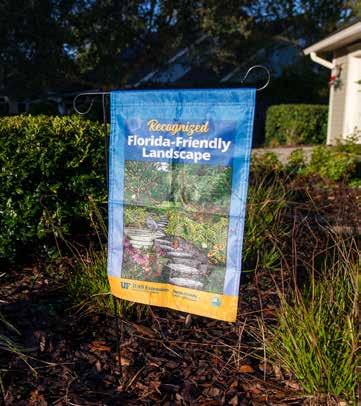
“We all play a part in protecting Florida’s environment and it is easy to get started,” said Wichman. “There are a multitude of options to help your landscape take on a wide range of personalities. It does not have to have a set look. Almost any landscape can be FFL as long as you’re using the right plants, following the nine principles and managing it correctly.”

WWW.INTHEFIELDMAGAZINE.COM INTHEFIELD MAGAZINE May 2023 39 PAGE
NEW, FAITH-BASED YOUTH AG PRODUCTION GROUP FORMED; SEEKS MEMBERS, VOLUNTEERS AND OPPORTUNITIES

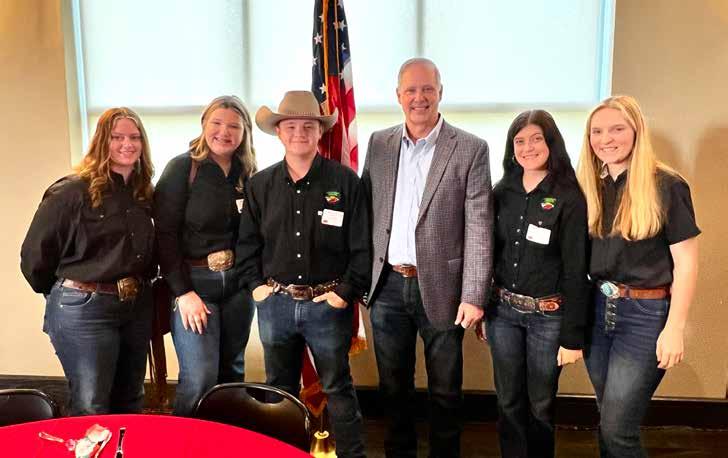
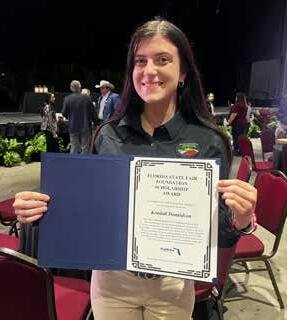 By Jim Frankowiak
By Jim Frankowiak
Youth Leaders in Production Agriculture (YLPA) is a new, faith-based organization founded in 2022 by a group of parents, youth supporters, agriculturalists and representatives of the Lake Wales, Florida-based Warner University Agriculture Studies Program. “We all wanted to provide today’s youth with a unique opportunity focused on production agriculture practices, sustainability and innovation,” said YLPA President Stephanie Conrad.
“Additionally, we wanted to be certain leadership development and service were driving forces in today’s changing times,” she added. “With the increase of home educated students, private schools and those who have opted into virtual education coupled with increased urbanization, we knew the time was both right and needed to help youth who have a drive and determination to enter the production agriculture field.”
The YLPA Organization is open to youth, ages 8 – 19 (that are still in high school). The organization also has a Seed Starters Program for youngsters ages 5-7. YLPA is also interested in recruiting dynamic and energetic volunteers and leaders. “Our goal is to have a YLPA Club in each Florida county,” noted Conrad, who also heads the Hillsborough County group that is to meet at The Home Place in Dover August 20.
The YLPA Pledge asks members to commit to:
• Learning continuously, recognizing that authority and knowledge of others and respect that I may learn from my peers, my elders and through experiences in life;
• Service without thought of self, with the intent to serve my fellow man and to serve God. I will respectfully and with passion strive to lift, inspire, encourage and build character in myself and others that is honoring to God and humanity;
WWW.INTHEFIELDMAGAZINE.COM INTHEFIELD MAGAZINE May 2023 40 PAGE
• Grow in practice by doing instead of watching. I will involve myself to be responsible in growing my own character as well as being diligent in the production, care and maintenance of the land, animals and resources that God created and put into our care; and
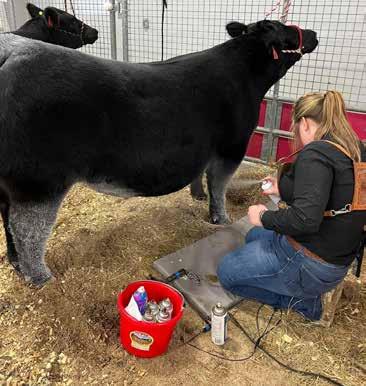
• Lead by example that others may follow, grow and serve to also become leaders with the intent of creating a common bond of like mind and spirit in all things faithful and true to good practice and principle.
In addition to President Conrad, a Dover resident who has been involved in production agriculture all of her life, the YLPA leadership includes: Co-Founder and Vice President Stephanie Collins, owner of Ag News Today, LLC, and a member of the Hillsborough County 4-H Foundation; Secretary Erin Smith, a Bartow native long involved in FFA and 4-H and a Senior Client Relations Manager with AgAmerica Lending; Treasurer Clay Joyner, who grew up on Circle J Farms with active membership in both 4-H and FFA, and is now a Loan Officer with Farm Credit of Central Florida; and Chaplain Jeramy Smith, who has more than 20 years of youth development experience, and is currently a family and youth advocate for “Free the Smiles.”
Additional YLPA Board members include Anna Conrad, a Regulatory Affairs Specialist with the Florida Fruit and Vegetable Association; Dr. Hugh Moye, Plant Science Professor and Chair of the Agriculture Studies Department at Warner University; Kaylee Poppell, Executive Director of Hillsborough County Farm Bureau; Justin Sharpless, an Instructor in Agricultural Studies at Warner University; Scarlett Jackson, Director of Admissions at Warner University; and additional board members Jessica Devilla, Kyndall Robertson Waterhouse and Derek Beatty.
The YLPA Mission is to “develop a passion and love for production agriculture in the hearts and lives of our young leaders of today. We strive to support the education and growth of these youth, who will be responsible for meeting the needs of the world in the future.
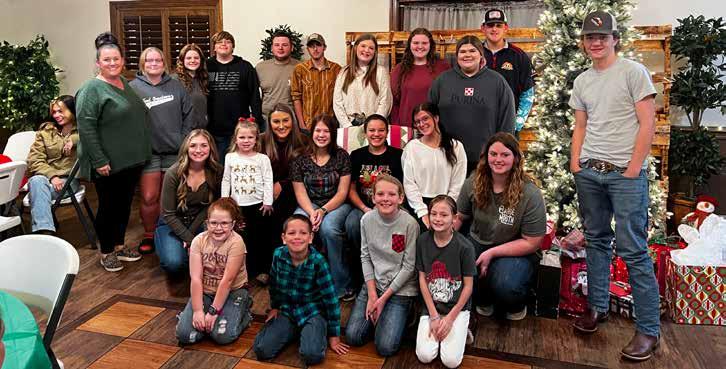
“We encourage youth to become leaders in their communities and get involved in giving back where they can. We promote learning from those currently involved in the industry and want to develop youth who can rise to the challenge of sustainability and innovation.”
In addition to new members and volunteers, YLPA would also like to hear from fairs, festivals or other activities that would like to involve members.
Prospective members, volunteers and related activities are encouraged to visit: ylpagriculture.org for more information, contacts and/or application forms. YLPA also has a Facebook presence and an email address: YLPAgriculture@gmail.com.
WWW.INTHEFIELDMAGAZINE.COM INTHEFIELD MAGAZINE May 2023 41 PAGE
GOD’S CREATION IN THE COUNTRY
By Libby Hopkins
Jason Maestas and his wife Jordyn were born and raised in the suburbs of Albuquerque, New Mexico and they met during their first week of high school. “We moved to Florida in 2010 after we graduated due to a soccer and academic scholarship Jordyn received from the University of Tampa,” Maestas said. “We lived in the outskirts of downtown Tampa for 12 years where we got married and started raising a family.”
A significant change happened in their lives when they were born again and became Christians in 2018. “This came from reading God’s word and drastically changed our perspectives on many things such as purpose, what success looks like and means, our marriage, our parenting, community involvement, how we prioritize our time, and family life in general,” Maestas said. “We now had a desire to get out of the city and into the beauty of Gods’ creation in the country, which led us to Plant City where we currently farm, and love it! We are first generation farmers and have no former background in agriculture. We have always liked farm animals and so livestock is where we wanted to begin.”
In the Maestas’ desire to get out to the land and build a strong family unit raised up under the Lord, they wanted to farm and provide great, healthy food for their family and community. “We came across Joel Salatin, who has been a major inspiration for our regenerative farming style, who has a family farm in Virginia,” Maestas said. “Regenerative style farming uses animals to regenerate soil and pasture health which has tons of benefits for our community, water retention, temperature, healthy forage for animals, and abundant life in general. We started diving into research on how God’s design for animals
and our planet work so well together and how we can cultivate that on a well-managed, smaller scale. This looks like animals that live in nature and not in houses and also move and move frequently.”
The couple was eager to get things rolling so, they started building mobile infrastructure and went for it. “Our name is Regeneration Family Farm because we practice regenerative style farming, and also because we love the regenerating work of God, the Holy Spirit. He, through the sacrificial death, burial and resurrection of Jesus Christ and His substitutionary atonement, washes the hearts of repentant believers and gives new life and union with God that they would not perish but have eternal life (Tit 3:5, John 3:16). It is rooted in Jesus’ words that we all must be born again to see the kingdom of God, and regeneration is that application of being born from above(John 3:3).”
The family loves all family farms and appreciate what it means for their community. “We just know that we focus on faith, family and farm fresh,” Maestas said. “We absolutely love our community and are committed to providing them with a local, healthy, delicious, transparent, friendly product and experience. We strive to follow God’s design which offers a super amazing product. We are grateful for all small local family businesses and farms.”
If you ask Maestas what he loves most about having a farm, he will tell you everything. “We love, love, love working alongside each other as a family,” Maestas said. “Getting up every morning with the kids and moving animals is such a joy. Another close favorite is interacting with our customers on mar-
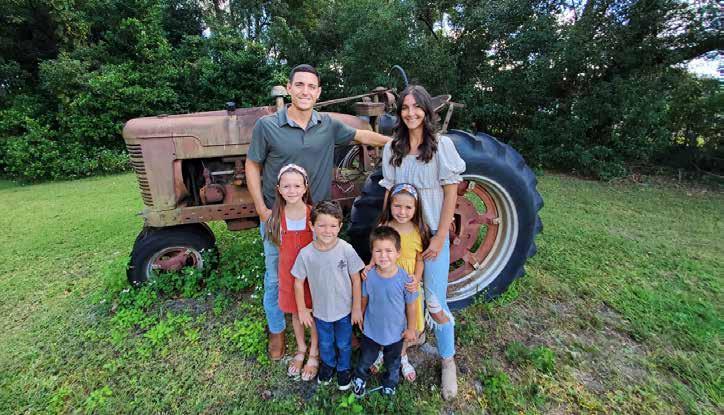
WWW.INTHEFIELDMAGAZINE.COM INTHEFIELD MAGAZINE May 2023 42 PAGE
ket days. We get to do it as a family and we get to share and talk about the things we love like Christ, family, and farming. Getting to know our customers and learning about them is wonderful because we build community which is so important.”
Keeping things local is very important to Maestas and his family. “Local farms have a large failure rate because they have to compete with giants who have many resources enabling them to lower costs and efficiencies,” Maestas said. “As a small farm we take on many moving parts and on a smaller scale, it’s difficult to compete. The small local farm is extremely important because, they are committed to the community and care. They offer the community a personal experience and a touchable insight to your food. You know where it is coming from and what goes into it. Supporting your local farm offers the community an opportunity to strengthen its selfsufficiency and rely upon one another. It provides local, real accountability and benefits all parties. We need more small, local businesses and farms and we greatly, greatly appreciate our community for supporting us! So thank you all!”
If you’d like to learn more about Regeneration Family Farm, you can visit their Facebook page at www.facebook.com/ profile.php?id=100087054156040 or their Instagram page at @ regeneration_family_farm.
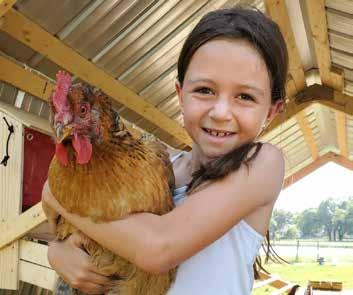
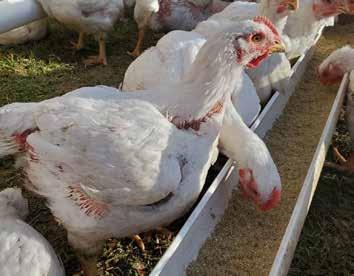
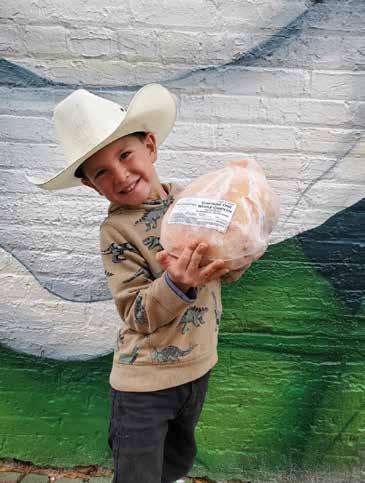
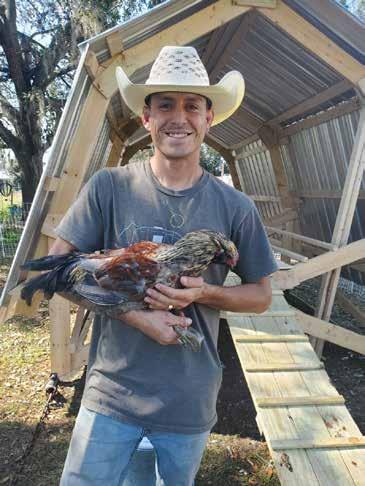
WWW.INTHEFIELDMAGAZINE.COM INTHEFIELD MAGAZINE May 2023 43 PAGE
by John Dicks
The “Few-Hikers” of the AT
Springtime is the season for lots of good things.
Behind us already was the Masters, the most beautiful of all golf tournaments. So, too, was the thundering horse racing at the Kentucky Derby, billed as the “fastest two minutes in sports.”
Soon it will be time to watch some tennis “down under” with the Australian Open, and then the fuel infused fury of car racing at the Indianapolis 500.
Perhaps a little more sedate, though still taken seriously by many, is that this time of year kicks off the start of a hiking journey on several of our nation’s longest, and most iconic trails.
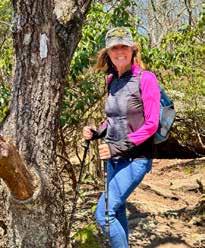
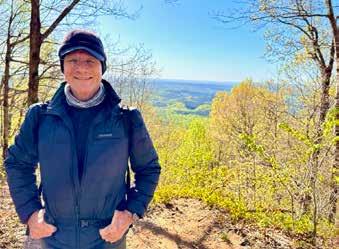
Countless books, articles, and several movies have recounted adventures, and sometimes tragedies, on noted trails including California’s John Muir Trail, starting at Yosemite and ending at Mt Whitney. There’s also the very long-distance Pacific Crest Trail stretching across our western most mountain ranges from the border with Mexico and reaching its northern terminus at the border with Canada.
Still, the “Granddaddy of them all,” and closer to home, is the Appalachian Trail. Simply referred to as the AT by most everyone who walks it, it’s celebrating this year the 100th anniversary of the first section opening back in 1923.

Altogether, the AT runs a total of 2,198.4 miles, spanning a course from Georgia to Maine. It crisscrosses over 14 states and reaches a height of 6,643 ft. at Clingmans Dome (bordering North Carolina with Tennessee), and dips down to a low of 124 ft. above sea level while crossing the Hudson River in New York.
Each year, about three million people step foot on at least a portion of the AT. As you might imagine, only a fraction of those set out to hike the entire trail. An even smaller number actually make it. No one knows exactly how many since registration is only suggested and not required.
The term “Thru-hiker” is given to those who hike the entire trail in one year. Other ambitious (yet perhaps more realistic) people who work towards completing the entire AT, but over several years, are known as “Section Hikers.”
The journey for successful “Thru-hikers” generally takes about six months to complete. Most do it starting in Georgia heading north, keeping pace with weather as it warms up, moving towards Maine.
That’s why mid April is the traditional step-off time. Start much earlier than that and you’ll feel like you’re freezing. Go much later and you really will be freezing by the time you finish in the fall at Mount Katahdin in Maine!
For 50 years I’ve been walking bits and pieces of the AT. This year I set out for a little more structured route to get a real taste of what it might be like for the “Thru-hikers.”
Granted I made no ambitious plan for hiking the entire 2,198.4 miles. Yet I knew we could handle a few. Thus with great respect and admiration for the “Thru-hikers,” I figured we could, at least, be the “Few-hikers!” So, I coined the term and we set off for a few miles on Springer Mountain, Georgia.
The plan had us hiking about 20 miles over three days. Rather than sleeping in a shelter, or trudging along with a tent, we opted for the relative luxury of two nights at Len Foot Hike Inn.
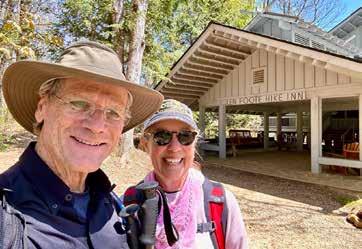
Part of the Georgia State Park system, and celebrating this year its 25th year, the Hike Inn is, as its name describes, a lodge that you must hike to just to get there. It’s five miles straight up (or so it seems) from the trailhead at a parking lot in Amicalola Falls State Park along the trail leading to start of the AT.
At the Hike Inn there are 20 very small bunk rooms, a bathhouse with compost toilets, and a dining room where you can enjoy a communal dinner and breakfast served family style.
It’s a great way and place to begin your “Thru-hike.” It turned out, though, not to be full when two groups of two hikers called earlier that day, having turned around after only a couple of miles, saying “it was not as expected!”
For the others, including us, not having to carry a tent, nor food for 20 miles while worrying about bears, seemed like a purely bliss way of being a “Few-Hiker.”
Indeed it was. So much so we vowed that before the “Season” is over in October, we’ll do a few more miles as us “FewHikers” are apt to do!
John Dicks is both a Lawyer and Businessman, including an interest in farming. He and his family have owned a Blueberry Farm and have Agricultural lands which they lease for cattle operations, as John says, “to someone who knows and handles cattle much better than I do!”. John is both a Gator, having received his undergraduate degree from the University of Florida, and a Seminole, with his Law Degree from Florida State University. John serves as Of Counsel to Trinkle Redman, a law firm in Plant City where he also served nine years as City Commissioner, including three terms as Mayor.

WWW.INTHEFIELDMAGAZINE.COM INTHEFIELD MAGAZINE May 2023 44 PAGE

Naturally Amazing Activities
 by Sean Green
by Sean Green
Framed Rustic Collage


I was poking around one of the retail craft stores and came across these cool picture frames that have a canvas backing stretched over foam and a hinged front panel that is secured with magnets. I love the look of raw canvas and burlap and thought it would be a great environment for the twigs I collected for last month’s project. For this we are transferring silhouette prints to the burlap background of the frame and recreating the image by gluing twigs together for a simple framed fleur-de-lis and a lighthouse piece from a collage of materials. The materials used for these projects are only suggestions. We hope this project will inspire our readers to crank up some great music and immerse yourself in a day of creative freedom. We would love to see pictures of what you created.
Materials:
Shadow Box Frame
Hot Glue Gun & Glue Sticks
Wood Glue
Pruning Shears
Heavy Duty Scissors
Twigs
Production:
Pebbles
Foil
White Glue
Food Coloring
Paint Brush (or cotton balls)
Print a silhouette design and cut out the image area (this will be where the twigs go.)
Trace the image onto the burlap

Cut and glue twigs in place
For water, mix a few drops of food coloring into white glue, paint the foil with the glue mixture, (dry in the oven at low temperature)
Hot glue heavy object (or object that will overlap foil)
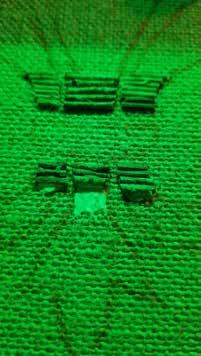
Place (or glue) the matting into the frame

WWW.INTHEFIELDMAGAZINE.COM INTHEFIELD MAGAZINE May 2023 46 PAGE
A Closer Look
A Closer Look by Sean Green
Invasive Mole Crickets (Neoscapteriscus)
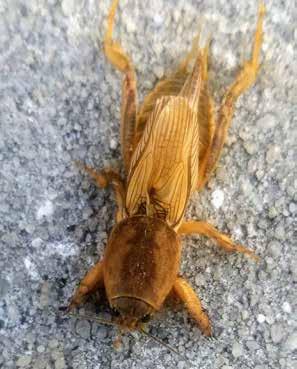
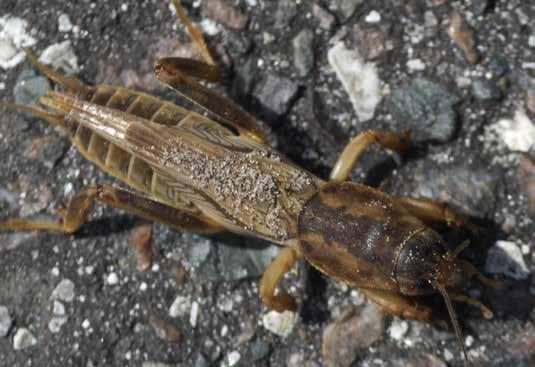
When I first moved to Florida in 1979 one of the first insects that fascinated me was what we commonly call a mole cricket. I had no idea what a mole cricket was until a Florida native explained that this critter was a type of cricket that digs into the ground to eat the roots of the grass. My friend continued to clarify that they are called mole crickets because they look like a tiny mole. Looking at this cricket I could see the resemblance to a mole and enjoyed collecting them. They were actually a cool insect to play with; they have claws on the front legs that are used for digging into the soil, and it’s huge mandibles are sturdy enough that if it bites you it might give you a scare (but not much harm). Most of us living in Florida have been taught that mole crickets in general are a terrible pest that ruin your lawn. This month we will take a closer look at the peculiar insect we know as the mole cricket.
I learned later we have a total of four species of mole cricket in Florida. Our only native species, commonly known as the northern mole cricket (Neocurtilla hexadactyla), and three invasive species, the tawny (Neoscapteriscus vicinus) the short-winged (Neoscapteriscus abbreviates) and the southern (Neoscapteriscus borellii) mole cricket. Furthermore, it’s worth noting that our native species is the only one of the four not considered a pest. Through the lens of ecology this makes sense since our native species is the only one with native natural predators.
Researchers generally agree that the three invasive species originate in South America where their host plant bahiagrass and its cultivars also originated. With the prevalence of bahiagrass dominating landscape choices, we have set a welcome plate for one of Florida’s most difficult pests. The problems that we face with imported agriculture is we also import the insects that come with it and without natural enemies they become pests. Although these mole crickets are primarily a turf pest, they also account for significant crop loss that include strawberries, tomatoes, peanuts, sugar cane and other vegetables, as well as ornamentals grown in Florida.
Don’t get me wrong, our native species are capable of the same damage the invasive species create, however, there are native predators in North America that keep our native species in check, specifically the Larra wasp (Larra analis), com-
monly known as the “mole cricket hunter.” These are solitary ground dwelling wasps that have no nest to guard and therefore lack the aggression that is common with social wasps like the paper wasps. These wasps are also thought to be obligate predators of our native mole cricket, meaning they only attack our native species of mole cricket, parasitize them as a food source for their own young. This happens when two organisms evolve together, and one becomes a specialized predator of the other. Another similar wasp (Larra bicolor) was introduced to Florida as a biological means of pest control for the South American species in 1979 by researchers at UF/ IFAS after chlordane was banned as a pesticide by the US Environmental Protection Agency. Researchers planted shrubby false button weed (Spermacoce verticillate), the host plant of the wasps, to encourage them to stay and propagate. Releases were then made in Gainesville, Tampa, Lakeland, Bradenton, and Ft. Lauderdale, however only the Ft. Lauderdale releases took hold initially. By 2009 surveys demonstrated that the Ft Lauderdale population had spread to at least 44 counties and showed the high level of effectiveness of Larra bicolor as a biological control agent of Neoscapteriscus mole crickets at two sites in the Gainesville area. This is by no means a silver bullet, but it gives s hope and planting the host plant Spermacoce verticillate to provide the wasps an ideal source of nectar seems to be working.
Knowing which species of mole cricket, you have (if any) is an important factor in controlling them with biologic agents. The invasive species (Neoscapteriscus) are known as two claw mole crickets, they can be differentiated from our native (Neocurtilla) by the two claws on the front legs; our native species has four claws on the end of it’s leg, with two more on the rest of it’ front leg for a total of six claws. In addition, the invasive species (Neoscapteriscus) has long wings that cover most of the abdomen, while our native species has short wings. Finally, the invasive species (Neoscapteriscus) has a smooth transition from its thorax to its head whereas our native species (Neocurtilla) appears to have a hood over its head. Managing these pest will not be an easy task, but if you take a closer look, to identify which mole cricket(s) you have, there is a chance you could let nature do the work and reduce the pesticide footprint around your home and your food.
WWW.INTHEFIELDMAGAZINE.COM INTHEFIELD MAGAZINE May 2023 47 PAGE
Farm Bureau and Nearly 600 Farm Organizations
and
Agribusinesses
Seek Congressional Help to Disapprove New Department of Labor Wage Regulation; Federal Lawsuit Filed in Florida
 By Jim Frankowiak
By Jim Frankowiak
The American Farm Bureau Federation (AFBF) and nearly 600 farm organizations and agribusinesses believe the newly implemented Department of Labor (DOL) Adverse Effect Wage Rate (AEWR) will negatively impact specialty crop producers across the U.S. The current AEWR rate in Florida, which went into effect January 1 of this year, is $14.33/hour.
“We are disappointed in DOL’s final rule on the AEWR methodology,” said AFBF President Zippy Duvall. “This administration says it wants to help family farms, but its agency largely ignored input in favor of a new calculus that will hurt small farms the most. Labor already accounts for almost 49 percent of total production costs on some farms, and the final rule will certainly continue to raise costs for family farms. Congressional action is the only way to deliver needed certainty and fairness to the farm economy.”
AFBF and related farm organizations and Ag businesses are urging Congress to support a resolution of disapproval under the Congressional Review Act, which is expected to be introduced in the near future. The bipartisan Farm Operations Support Act in the Senate would temporarily reset AEWR at its 2022 levels.
The Agriculture Workforce Coalition, which comprises organizations and specialty interest groups across the country like the AFBF, Florida Fruit and Vegetable Association (FFVA), Florida Strawberry Growers Association (FSGA), Florida Citrus Mutual, Florida Nursery, Growers and Landscape Association (FNGLA) and Florida Tomato Exchange recently sent a letter to leaders in Washington, D.C., urging immediate congressional action. Those leaders included Senate Majority Leader Chuck Schumer, Senate Minority Leader Mitch McConnell, House Speaker Kevin McCarthy and House Minority Leader Hakeem Jeffries.
“The DOL’s regulation comes at a time when American farmers are reeling due to record high costs of production that have translated into thin and even negative margins, conditions the new regulation will greatly exacerbate,” the letter stated. “Moreover, the regulation further complicates an already complex (H-2A) program and creates legal uncertainty for farmers who comply with requirements in good faith. The Depart-
ment of Labor has also managed to develop a regulation that it, too, will have great difficulty administering, making the program even more cumbersome for farmers, many of whom produce perishable goods whose handling cannot wait on bureaucracy.
“Because of the H-2A program’s critical importance to America’s farmers, key reforms to the program that would make it work more effectively for farmers on the ground would be very beneficial. Unfortunately, the new regulation would take the program in the opposite direction, harming the farmers who depend on it.
“Please cosponsor and support the disapproval resolutions.” The letter requested.
The H-2A temporary agricultural program allows agricultural employers who anticipate a shortage of domestic workers to bring non-immigrant foreign workers to the U.S. to perform agricultural labor or services of a temporary, seasonal nature. In addition to a minimum hourly wage rate, the program stipulates a number of other criteria that must be met by agricultural employers such as approved housing, transportation – both locally and internationally and others.
Here in Florida, several agricultural groups and farmers filed a somewhat related lawsuit late last month in Tampa seeking to block the new rule about wages for H-2A farmworkers. The lawsuit, which was filed in federal court, contends that the rule change by the U.S. Department of Labor will improperly raise wages that farmworkers are forced to pay and conflicts with federal law.
Plaintiffs in the case are Florida Citrus Mutual, the Florida Fruit and Vegetable Association (FFVA), Florida Growers Association, Inc., the National Council of Agricultural Employers (NCAE) and Hillsborough County strawberry growers G&F Farms and Franberry Farms, LLC. The defendants are the U.S. Department of Labor and Acting Secretary Julie Su.
The lawsuit contends that the rule violates federal laws known as the Administrative Procedure Act and the Regulatory Flexibility Act and seeks a preliminary injunction.
WWW.INTHEFIELDMAGAZINE.COM INTHEFIELD MAGAZINE May 2023 48 PAGE
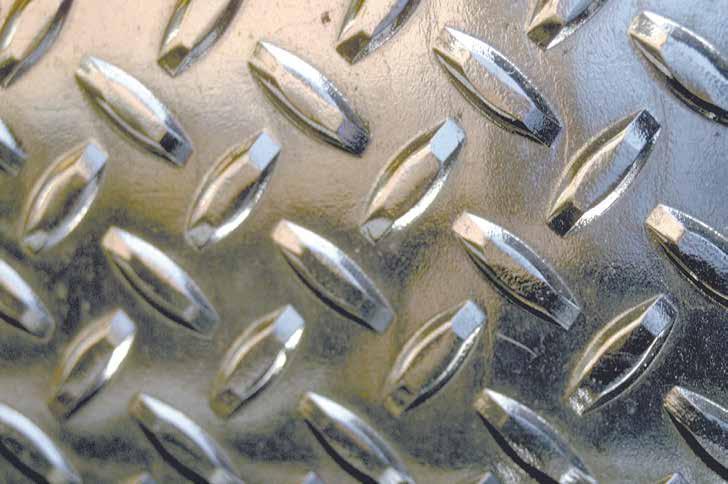



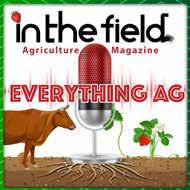
WWW.INTHEFIELDMAGAZINE.COM INTHEFIELD MAGAZINE May 2023 49 PAGE ontinued next page Specializing in Foreign and Domestic Trucks and Cars 4X4 and NPR’s SERVICES ALSO OFFERED: A/C Repair • Brakes • Timing Belts • Alternators • Starters •Suspension Drivetrain Repair • Tune Up • Differential Repair Specialist • Fleet Maintenance Specialist R.V. & Heavy Truck Repair • Trailer Repair • 7.3, 6.0 & 6.4 • Diesel Specialist • Same Day Service in Most Cases • 30,000 & 40,000 Pound Lifts and much more! Come See Porky! Bill Somerlott, Owner Tel: 813.707.9865 13350 Hwy. 92E Dover, FL 33527 WE NOW OFFER TOWING BILL’S TRANSMISSIONS ITFM “ Everything Ag” Podcast! @InTheFieldMagazine Find it on www.inthefieldmagazine.com or listen Spotify | Google | Apple | Amazon
1,200 THIRD GRADERS
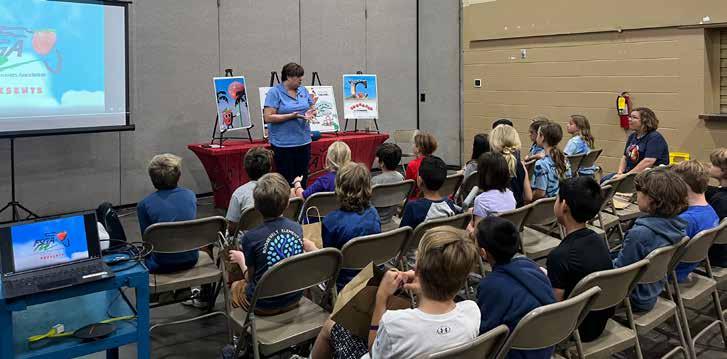
LEARN ABOUT THE IMPORTANCE OF AGRIULTURE AT SPRING AG-VENTURE
 By Jim Frankowiak
By Jim Frankowiak
Ag-Venture, the hands-on learning experience for Hillsborough County 3rd graders recently attracted some 1,200 participants to the Florida State Fairgrounds. First introduced in 1994, the Ag-Venture Program has as its mission “to help 3rd graders develop an understanding of where food comes from and the impact agriculture has on their daily lives,” said Hillsborough County Farm Bureau (HCFB) Executive Director Kaylee Poppell.
Ag-Venture takes place at the agriculture complex within the Florida State Fairgrounds. Students are divided into groups and rotate through various sections of the agriculture industry. The group’s tour consisted of 15 stations representing different aspects of agriculture with a variety of hands-on activities and a balance of both plant and animal science.
The program’s stations and presenters included:
• Water Wise – the University of Florida Institute of Food and Agricultural Sciences (UF/IFAS) Extension’s Lynn Barber, Kim Bragg-Armatrout, Heather Crowley, Michael Masucci, Paula Staples and Will Stone
• Pizza Garden - UF/IFAS Extension’s Kim BraggArmatrout and Adrian Bowden
• Good Bug - UF/IFAS Extension’s Amber Norris
• Dairy – UF/IFAS Extension’s Lisa Leslie, Mollie Tew and Nicholas Hammer of Hammer Time Hollow Dairy
• Beef – UF/IFAS Extension’s Shelby Mauch, Tia Silvasy and Allison Williams; and Raelyn Hudson, Shalee Conrad, Alice Goff, Kendall Donaldson, Bella Ballard, Grace Merrell, Makayla Register and Emmy Taylor
• Forestry – Mona Neville, with the Florida Forestry Association
• Strawberry – Brian Reichenbach and Michelle Williamson with the Florida Strawberry Growers Association (FSGA)
• Phosphate – Sammi Wilcox with Mosaic Co.
• Pollination –Hillsborough County Soil and Water Conservation District
• Bees – Ryan Lusetti and Judy Harrison
• Garden – Mary Suralis and Joni Fryer
“Ever since Ag-Venture was first introduced in 1994, the program has benefitted from its sponsors, presenters and volunteers,” noted Poppell. “We are most grateful for this ongoing support as we approach the program’s 30th anniversary.”
WWW.INTHEFIELDMAGAZINE.COM INTHEFIELD MAGAZINE May 2023 50 PAGE

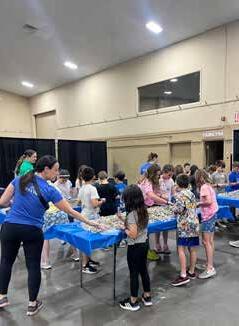
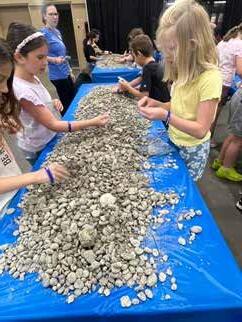
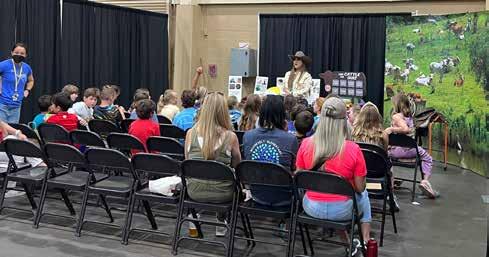
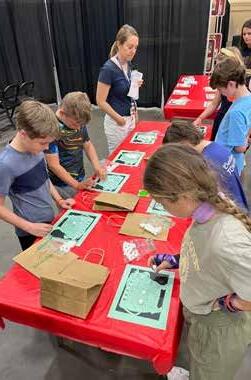
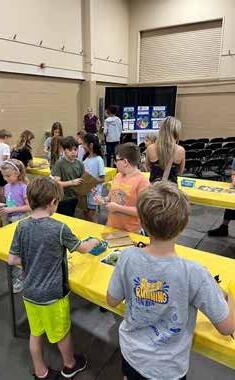
WWW.INTHEFIELDMAGAZINE.COM INTHEFIELD MAGAZINE May 2023 51 PAGE
FLORIDA STRAWBERRY FESTIVAL YOUTH LIVESTOCK BANQUET DRAWS CROWD
THOUSANDS OF DOLLARS AWARDED TO LOCAL FFA SENIORS THANKS TO GENEROUS SPONSORS.
By Michelle Caceres
The Charlie Grimes Family Agricultural Center was a sea of boots, belt buckles, Wrangler jeans, cowboy hats and the iconic blue corduroy jackets as the Florida Strawberry Festival and its local scholarship partners handed out thousands of dollars to high school seniors whose lives have been positively impacted by their participation in the FFA program.
Durant seniors and fraternal twins Caroline and Peyton Haxton, who received multiple scholarships, said the money will help them reach their educational goals. They’ll both be attending University of Florida in the fall. Caroline plans to major in Agricultural Education and Environmental Science and Peyton plans to major in Criminology.
“FFA definitely opened our eyes to the agriculture industry, it’s shown me how much it impacts our daily live,” said Caroline. “I want to become an agriculture teacher.”
She credits the FFA program, which they participated in for seven years, for not only igniting a passion for agriculture but also cultivating leadership and public speaking skills.
For Peyton, winning the Tim Cribbs Memorial Scholarship was meaningful. Cribbs, who passed away on December 14, 2022, at age 61, was the ag teacher at Durant High School.
“Mr. Cribbs was a vital part of my time at Durant, no words can express how much he is missed,” said Peyton.
Students weren’t the only ones reminiscent of Cribbs. “That wound is still fresh and deep, he meant a lot to the festival, his student and the FFA,” said past Florida Strawberry Festival President Paul Davis.
Durant senior Savannah Rice, who’s a candidate for Florida FFA’s 2023-2024 state officer for Area V, will be attending college in Illinois, where she will join its Dairy Cattle Judging team and major in Animal Science. She’s grateful for the scholarships. “My steer didn’t make weight for the Festival this year however I was still given a chance to apply for scholarships which was very generous of them,” she said.
Strawberry Crest senior Spencer Baylor, who won a scholarship, will be attending Texas Tech and majoring in Animal Science. He hopes to one day own a beef cattle operation.
“I have to say how life-changing the FFA program is,” he said. “It’s taught me to be myself and put myself out there in the community and help create a greater outreach for the industry as a whole.”
Plant City High senior, FFA member and banquet attendee
Julia Jones didn’t win a scholarship (in truth she didn’t apply because English isn’t her strong suit and the scholarships required essays) but the skills she learned in the program will have a lasting positive impact on her life. Jones, who has highfunctioning autism spectrum disorder, learned to improve her communication skills and to make eye contact while showing steers. At first she never placed in the Showmanship category because she couldn’t look the judges in their eyes but she loved the animals, and they don’t judge, so she persevered
and practiced making eye contact and now has mastered the skill. “It helped her achieve something we couldn’t with therapies and everything else,” said mom Sabrina Jones.
Jones showed three steers during her time in FFA. She plans to use the profits from the sale of Zeus, this year’s steer, to attend Hillsborough Community College and pay off her Harley Davidson motorcycle that she purchased from her grandmother. She has dreams of becoming a veterinary technician, maybe a veterinarian. “I have a passion for livestock and enjoy working with animals,” she said.
While the evening was all about the students, the generous and unyielding support by parents, teachers, sponsors, businesses and agricultural families was on full display as awards were distributed to hard-working youth.
Florida Strawberry Festival $1,000 Scholarships were awarded to 25 seniors, including: Spencer Baylor, Savannah Rice, Samuel Shiver, Samuel Potter, Peyton Haxton, Morgan Chancey, Mackenzie Kolpin, Kenley Connell, Kendall Donaldson, Judson Smith, Jayden Mathena, Haley Bell, Faith Satterfield, Dallas Edwards, Cooper McDonald, Case Watson, Caroline Haxton, Brooklyn Zajac, Avery Ashley, Ava Hasting, Alex Nuckles
William R. McClelland Scholarship
Jayden Mathena
James L. Redman Scholarship
Kenley Connell
Roy Parke Scholarship
Spencer Baylor
J.V. “Jim” Walden Scholarship
Case Watson
Heather Layton Memorial Scholarship
Kandall Donaldson
Patricia Jean Cauley Scholarship
Avery Ashley and Haley Bell
Floyd Hall Scholarship
Avery Ashley and Caroline Haxton
Chuck Combs Memorial Scholarship
Savannah Rice
Tim Cribbs Memorial Scholarship
Peyton Haxton
Kem Grimmer Memorial Scholarship
Samuel Shiver
Perry & Debra Buttram Memorial Scholarship
Caroline Haxton, Savannah Rice, Dallas Edwards
WWW.INTHEFIELDMAGAZINE.COM INTHEFIELD MAGAZINE May 2023 52 PAGE

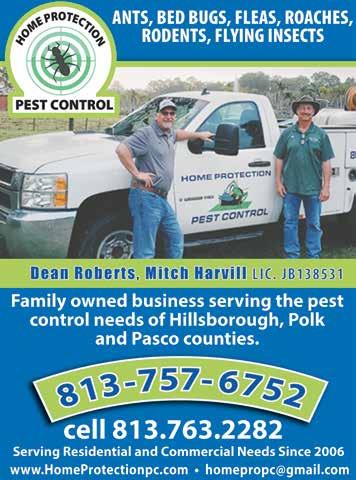
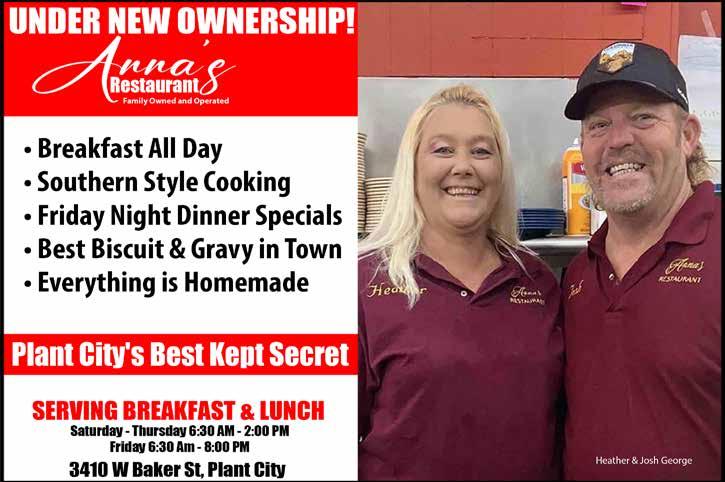
WWW.INTHEFIELDMAGAZINE.COM INTHEFIELD MAGAZINE May 2023 53 PAGE

















WWW.INTHEFIELDMAGAZINE.COM INTHEFIELD MAGAZINE May 2023 54 PAGE The Food Safety Modernization Act (FSMA) Produce Safety Rule (PSR) inspections have begun. Sign up now to request a free On-Farm Readiness Review (OFRR), offered in partnership by the Florida Department of Agriculture and Consumer Services and University of Florida IFAS. The OFRR is an educational opportunity to help individual farms align practices with the PSR regulatory requirements in preparation for inspections. For more information on FSMA and to sign up for an OFRR, visit FDACS.gov/FSMA or call (863) 578-1900. To take full advantage of the OFRR and for PSR compliance, one farm representative should first attend a Produce Safety Alliance Grower Training. Upcoming trainings can be found at: crec.ifas.ufl.edu/extension/events This publication is supported by the Food and Drug Administration (FDA) of the U.S. Department of Health and Human Services (HHS) as part of a financial assistance award U2FFD007446 totaling $1,166,732 with 100 percent funded by FDA/HHS. The contents are those of the author(s) and do not necessarily represent the official views of, nor an endorsement, by FDA/ HHS, or the U.S. Government. for a FREE On-Farm Readiness Review Sign up




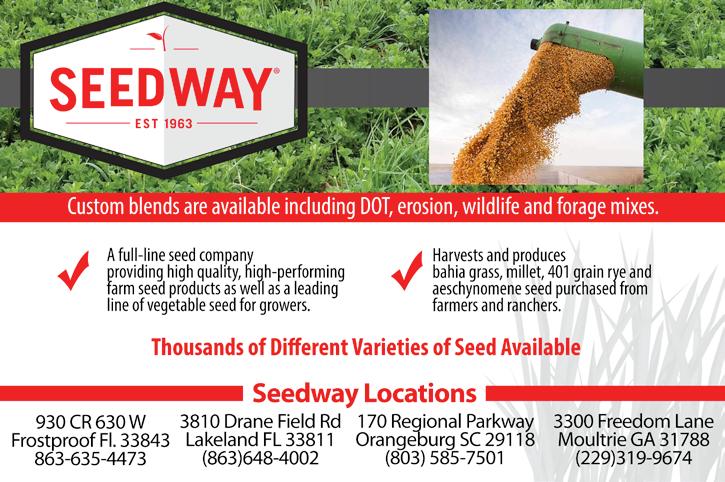
WWW.INTHEFIELDMAGAZINE.COM INTHEFIELD MAGAZINE May 2023 55 PAGE
FROM THE SCIENTIFIC FIELD
Do you often walk around your yard looking for beautiful blooms and foliage to bring indoors? Consider planting a cutting garden and growing your own flowers to cut and enjoy. Cutting gardens are garden spaces where flowers are selected and grown to be cut and displayed indoors. Many times, they have bright, attractive flowers and long, ridged stems that lend well to floral design.
But you can add small spots in your existing landscape instead of a designated space or even grow a small cutting garden in containers.
Growing your own flowers is a great way to experiment with color and texture. Try your hand at mixing and matching for fun and unique bouquets that can be used in your home or given as a thoughtful gift.
Native plants, particularly wildflowers, offer beautiful (and sometimes unusual) blooms that make great cut flowers. If you have a pollinator garden, you are aware of the beauty and variety of flowers available. Consider planting a few extra to cut. Most Florida flowers that will do well in the cutting garden will require full sun and well-drained soil. If you plan to cut flowers frequently, the garden may not always look the best. Locate the cutting garden in an inconspicuous part of your yard if you are concerned about appearances. If you don’t want to designate an area just for cut flowers, you can intersperse some of the recommended plants below into your existing landscape beds and use other plants to hide cut foliage.
Here are a few native plants that grow well in most central Florida yards and work well in a cutting garden:
• Florida native BLOOMS: Starry rosinweed, tropical sage, black-eyed Susan, gaillardia, coreopsis, aster varieties, liatris, coneflower,
• Florida native FOLIAGE: Coontie cycad, ferns, saw palmetto, holly, ornamental grasses (such as muhly grass in the fall)
Additionally, there are many non-native plants that produce beautiful flowers and foliage for cutting. These plants are great additions to your landscape or can be planted in your cutting garden alone. Look for interesting foliage on plants, but be cautious, many tropical foliage plants can be susceptible to cool/cold temperatures in the winter. Also, make sure that you do not choose a plant found as invasive by the UF/ IFAS Assessment.
Here are a few recommendations:
• Florida-friendly non-native BLOOMS: Camellia, hibiscus, gardenia, coleus, daylilies, Gerbera daisy, pentas, shrimp plant, Mexican sage and other salvia varieties, allamanda, begonia, vinca, zinnia, and many more.
• Florida-friendly non-native FOLIAGE: holly, monstera, cycads, bird of paradise, herbs such as dill, basil and mint.
A cutting garden beautifies your yard as well as your home. If you follow the right plant, right place principle, the plants grown in the cutting garden will be low maintenance. Get creative and plant for a burst of color. Share your bouquets with

friends and family that are sure to appreciate the unique and gorgeous colors from a central Florida cutting garden.
For more information, contact UF/IFAS Extension Polk County at (863) 519-1041 or visit us online at http://sfyl.ifas.ufl.edu/ polk. The Plant Clinic is open Monday-Friday, 9:00 am-4:00 pm to answer your gardening and landscaping questions. Give us a call or email us at polkmg@ifas.ufl.edu.
If you are not in Polk County, Contact your local UF/IFAS Extension Master Gardener Volunteer Plant Clinic.
The Florida Master Gardener Volunteer Program is a volunteer-driven program that benefits UF/IFAS Extension and the citizens of Florida. The program extends the vision of the University of Florida/Institute of Food and Agricultural Sciences, all the while protecting and sustaining natural resources and environmental systems, enhancing the development of human resources, and improving the quality of human life through the development of knowledge in agricultural, human and natural resources and making that knowledge accessible.
An Equal Opportunity Institution.
WWW.INTHEFIELDMAGAZINE.COM INTHEFIELD MAGAZINE May 2023 56 PAGE
Planting a Cutting Garden | Anne Yasalonis | UF/IFAS Extension Polk County
FLORIDA

Strawberries & Pineberries


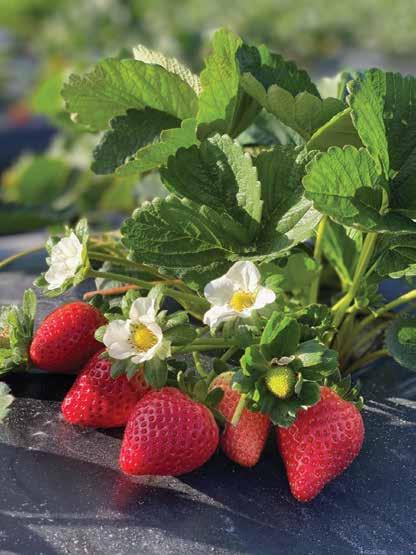
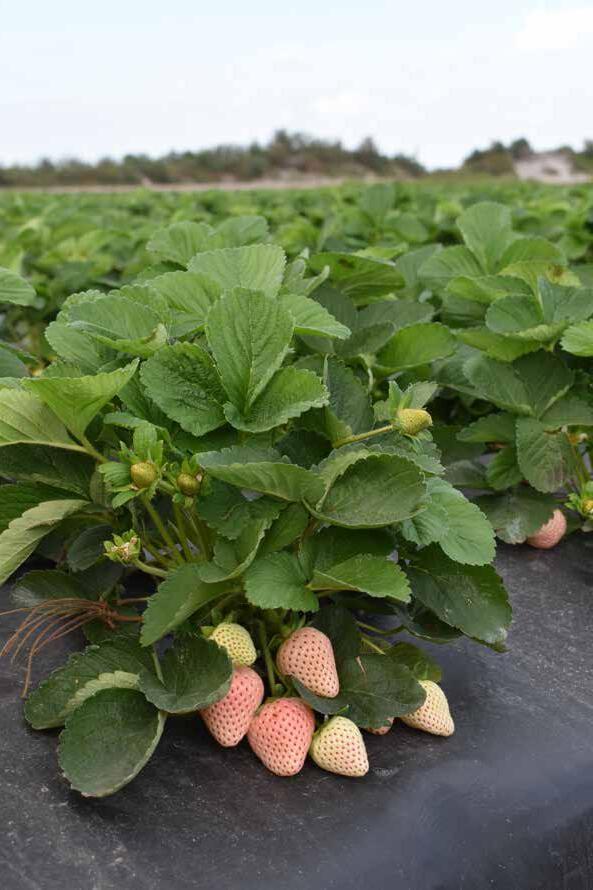
now In SEasoN!


WWW.INTHEFIELDMAGAZINE.COM INTHEFIELD MAGAZINE May 2023 57 PAGE
FLORIDA STRAWBERRY FESTIVAL ANNOUNCES NEW PRESIDENT Kyle Robinson
The Florida Strawberry Festival announced that Kyle Robinson is the new president effective immediately. He has replaced Paul Davis, who retired April 12, 2023.
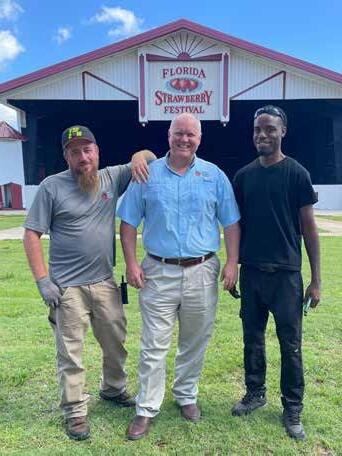
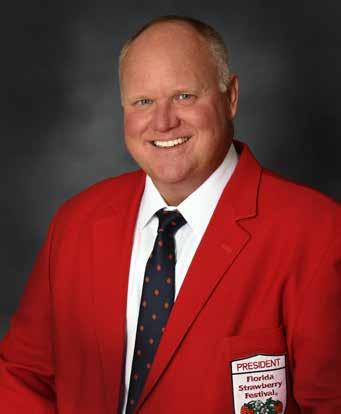
“Kyle will be the twelfth president/general manager in the Festival’s 92–year history,” said Florida Strawberry Festival Past President Paul Davis. “The board of directors and I are confident that Kyle is the right person for the job. He has worked security at our Festival for 25 years now and knows our event so well. I have worked with Kyle and know firsthand his work ethic and passion to serve.”
Robinson has been working as president-elect since August of 2022. In his new role as president, he will directly oversee all of the Festival’s day-to-day operations while working alongside the board of directors and associate directors. Prior to his employment with the Festival, Robinson served 27 years with the Hillsborough County Sheriff’s Office from which he retired as colonel of patrol operations.
“The Festival has been a large part of my life, some of my fondest memories were made here. It’s an incredible opportunity to serve the festival and this great community,” said Florida Strawberry Festival President Kyle Robinson. “I am confident moving into this new position because the Festival has an engaged, experienced, and knowledgeable board of directors and associate directors to rely upon for guidance. The insight I have gained from my experience in working the Festival with the Hillsborough County Sheriff’s Office has prepared me to offer festival guests with quality customer service interactions. Not too many people can say they have worked two dream jobs in their lifetime. I am blessed.”
The Florida Strawberry Festival is an 11-day community event celebrating the strawberry harvest of Eastern Hillsborough County. Each year, more than 600,000 visitors enjoy the Festival’s headline entertainment, youth livestock shows, exhibits of commerce and, of course, its strawberry shortcake. The 2024 Florida Strawberry Festival takes place February 29 through March 10 in Plant City. For more information, visit www.flstrawberryfestival. com, Facebook, Instagram, TikTok and Twitter (#BerryFest24).
WWW.INTHEFIELDMAGAZINE.COM INTHEFIELD MAGAZINE May 2023 58 PAGE
The Largest State Farmers’ Market – Plant City!
By Plant City Photo Archives, Inc. Originally ran in May 2005

When the country’s economy began to collapse in the 1920s, so did Florida’s. Farmers and farm suppliers were hard pressed. In 1929 the state legislature established a state marketing board to promote cooperative marketing. In 1933 the legislature provided for a system of state farmers’ markets throughout Florida and Federal funding was secured to enable this program.

By 1941 there were 21 farmers’ markets in the state, grossing over $11 million in sales annually. The market at Plant City, consisting of three 600-foot sheds, an administration building, a service station, two warehouses, and a storage house, was the largest in the state.
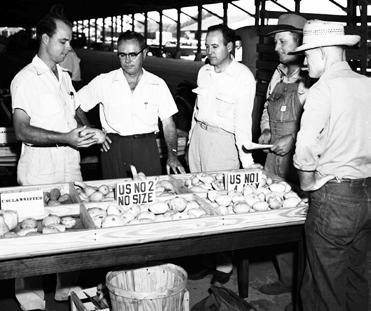
These photos are from “Opening Day” in April 1955 – 50 years ago. We don’t know who these men are, but if you do, please let us know.
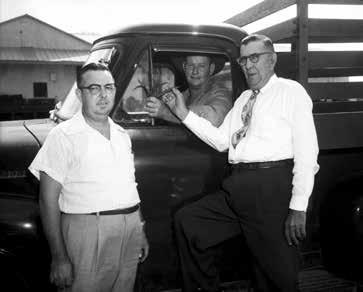
WWW.INTHEFIELDMAGAZINE.COM INTHEFIELD MAGAZINE May 2023 59 PAGE
Sources: Quintilla Geer Bruton and David E. Bailey, Jr. Plant City: Its Origin and History, and Plant City Photo Archives, Inc.
Recipes
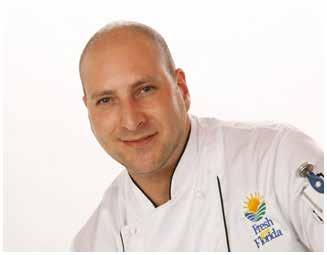
Courtesy of the Florida Department of Agriculture and Consumer Services.
Florida Blueberry Key Lime Pie

DIRECTIONS
Graham Cracker Crust Preparation
Preheat oven to 350 degrees F.
In a medium-sized mixing bowl, combine graham cracker crumbs, butter and sugar.
thicken slightly).
Pour Key lime pie filling mixture into the cooled graham cracker crust. Bake pie for 10 to 15 minutes or until the pie looks almost set.
Remove pie from oven and let cool to room temperature.
• Graham Cracker Crust
• 1½ cups finely crushed graham cracker crumbs
• 1/3 cup butter, melted
• 3 tablespoons Florida sugar
• Key Lime Pie Filling
• 14-ounce can sweetened condensed milk
• 4 large egg yolks
• 1/2 cup fresh squeezed Florida

Key lime juice
• 3 teaspoons fresh Key lime zest
Florida Blueberry Topping Ingredients
2 cups Florida blueberries
1/2 cup apricot jam
1/4 cup water
DIRECTIONS
Preheat oven to 425 degrees. Whisk together first 5 ingredients
Stir ingredients to combine.
Press the graham cracker mixture into the bottom and sides of a 9-inch pie pan. Bake for 10 minutes. Let cool completely. Set aside.
Key Lime Pie Filling Preparation
Preheat the oven to 325 degrees F.
In a medium-sized mixing bowl, combine condensed milk, egg yolks, Key lime juice and Key lime zest. Use a whisk to make sure all ingredients are combined (the combined ingredients will naturally
Ingredients
1/4 cup dry breadcrumbs
Cover pie and place in the refrigerator as it is best served cold.
To serve, top pie with fresh whipped cream and slices of fresh Key lime.
Florida Blueberry Topping Preparation
Heat the apricot jam and water in a small saucepan over medium heat until completely melted. Arrange blueberries in a single layer over the key lime pie.
Using a pastry brush, brush a layer of melted jam over the blueberries. Let cool.
INGREDIENTS q q
Zucchini Chips
1/4-inch thick
1/4 cup grated fresh Parmesan cheese
1/4 teaspoon seasoned salt
1/4 teaspoon garlic powder
1/8 teaspoon freshly ground black pepper
2 tablespoons fat-free milk
2 ½ cups Florida zucchini, sliced
in a medium bowl. Pour milk into a shallow bowl.
Place an ovenproof wire rack coated with cooking spray on a baking sheet.
Dip zucchini slices in milk, and dredge in breadcrumb mixture. Put coated slices directly onto the

Cooking spray
Feta and Dill Dip
1 cup plain low-fat yogurt
1 tablespoon fresh Florida dill, chopped
1 tablespoon crumbled feta cheese
prepared wire rack.
Bake for 30 minutes or until browned and crisp.
Serve immediately with Feta and Dill Dip.
Feta and Dill Dip
Mix all ingredients and serve.
WWW.INTHEFIELDMAGAZINE.COM INTHEFIELD MAGAZINE May 2023 60 PAGE
Chef Justin Timineri
International Association of Fairs and Expositions (IAFE) Designates

SUZANNE HOLCOMB as a Certified Fair Executive (CFE)
The International Association of Fairs and Expositions (IAFE) has announced that Suzanne Holcomb of the Greater Hillsborough County Fair Association, Inc. has been named a Certified Fair Executive (CFE).
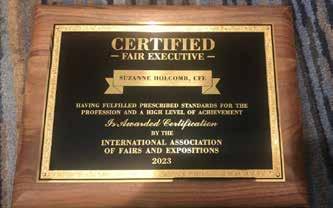
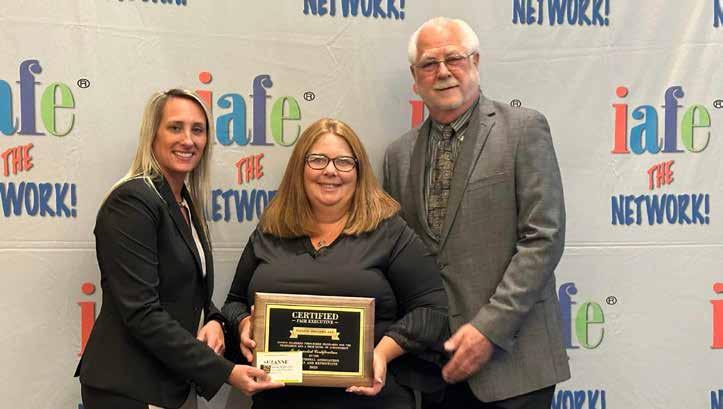
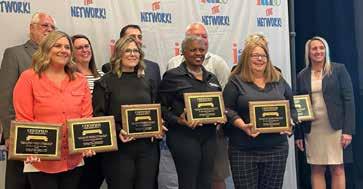
"We are thrilled to congratulate Suzanne Holcomb on her achievement in earning the prestigious CFE designation," said Marla Calico, President and CEO of the IAFE. "As a dedicated member of the IAFE, Suzanne has demonstrated her commitment to advancing the fair and exposition industry through her hard work, dedication, and expertise. We are proud to support Suzanne in her professional development and look forward to seeing the continued impact she will have in our industry."
This certification program provides incentive for professional improvement in fair management, recognizes those who achieve the specific standards, and develops professional status in the field of fair management. Certification also honors those members who have
demonstrated their abilities through years of service to their fairs, fair associations, communities and the IAFE.
To earn the CFE designation, Suzanne completed a rigorous certification process that included an application that documented her professional experience and achievements, followed by a thorough review by the certification committee.
The International Association of Fairs and Expositions (IAFE), based in Springfield, Mo., is a voluntary, nonprofit corporation, serving state, provincial, regional, and county agricultural fairs, shows, exhibitions, and expositions. Its associate members include state and provincial associations of fairs, non-agricultural expositions and festivals, associations, corporations, and individuals engaged in providing products and services to its members, all of whom are interested in the improvement of fairs, shows, expositions, and allied fields.
WWW.INTHEFIELDMAGAZINE.COM INTHEFIELD MAGAZINE May 2023 61 PAGE
BUILDING SUPPLIES
METAL ROOFING
Thousands of 8ft. & 10ft. sheets. In Stock. Prices from $6 and up. Custom lengths available. 813-752-7088 ask for Ferris
ALUMINUM
We have all your aluminum needs! Screen Room, carports & awnings. Call Blake (813) 752-3378
WINDOW SCREENS
We make window screens of all sizes available in different frame colors. Call Ted(813) 752-3378
CABINETS
All wood kitchen cabinets. All wood vanities. Custom made to your size. Call Chris 813-752-3378
VINYL SIDING
Many colors and styles to choose from. Ask for Ted. 813-752-3378
MOBILE HOME SUPPLIES
Everything you need under ONE roof! Call Blake 813-752-3378 NEW, USED & ABUSED.
CALL FOR A WINDOW QUOTE.
We are a MI Windows dealer. Our windows are energy star, lifetime warranty. Call Broke & Poor 813-752-3378
FARM EQUIPMENT
I4 POWER EQUIPMENT
Trade-Ins Welcomed, Service Department
Available. Exit 22 • S. Frontage Rd. Plant City 813-752-4459
JOHN DEERE
Looking for your new tractor?
Come see us at Everglades Farm Equipment. evergladesfarmequipment.com
2805 SR 60 West, Plant City 813-737-1660
OVERSTOCK SPECIAL
Barn doors starting at $80.00 Call Ted 813-752-3378
USED BUSH HOG
BH 6’ cutter. $875 Call Alvie 813-759-8722
MALETTI ROTARY TILLER
With 8’ roller. $10,000 or best offer. Call 813-634-1162
1989 JOHN DEERE
770 2 wd tractor with 5' mid mount mower. $3,750 ask for Alvie. 813-759-8722
CITRUS PACKING HOUSE
Citrus packing house equipment for sale. Mikey Fertilizer Spreader, two wind machines. Call 863-324-2833
USED BALDOR-RELIANCE
Used 7.5 HP pump motor and 119 gal. holding-tank. Call LLCA 813-382-8382
FOR SALE
OLD ANTIQUE BLUE STOVE
Bread warmer, chrome trim. You have got to see it to believe it! Call Ted for more details. 813-752-3378
DOORS & WINDOWS SPECIAL ORDER
No upcharge. House & Mobile Home. Many standard sizes in stock. Ask for Blake. (813) 752-3378
KITCHEN CABINETS & VANITIES
Get quality all wood cabinets for less than the BIG Box STORES! Call Today! Ask for Blake. (813) 752-3378
TWO LARGE LOUNGE CHAIRS
Both swivel, recline, and rock. Color tan. $300 each if sold separately. $500 if bought together. Used for two years. Call 813-754-8161
JOBS
MECHANIC NEEDED
Agricultural equipment. Pay with benefits based on experience. Call David 863-537-1345 or Alvie 813-759-8722
PARTS COUNTER HELP
Wanted for parts look up and sales. Experience in the agriculture equipment service. Speak with Alvie. 813-759-8722
LAWN EQUIPMENT/ SUPPLIES
USED HUSQVARNA
Lawn tractor with 48" deck. Bagging system included. In good condition. $995.00 Call Alvie 813-759-8722
USED ZERO TURN
Zero turn mowers, several to choose from. Call Alvie 813-759-8722
WANTED
WANTED OLD FISHING TACKLE
Wood lures, Bamboo fly rods, Bagley lures. Any old fishing collectible stuff. Call 863-559-8520
PRODUCE
FRESH PRODUCE
Forbes Road Produce. Open everyday from 7:30am - 8pm. Forbes Rd. & I-4 @ exit 17. Come out and see us!
MISC.
FREE Wooden Shipping Pallets
All sizes! Call Alvie 813-759-8722
24 HOUR SERVICE
Coggins Plumbing licensed • bonded • Insured. www.cogginsplumbing.com 813-643-7173
FARM BUREAU INSURANCE
We have you covered! Call us today. 813-752-5577
ALAN’S AIR CONDITIONING
Residential, Commercial Sales SVS & Repair. Legendary service for over20 years! 813-752-0821
SHOWER STALLS - FIBERGLASS
Scratch and dent shower stalls - fiberglass perfect for hunting camps. $150 you pick! Call us! 813-752-3378
FOR RENT
Millcreek Pine Bark Row Mulcher. For blueberry farms, six yard, PTO drive need at least a 30hp tractor. Call 863-604-2526 for rental details.
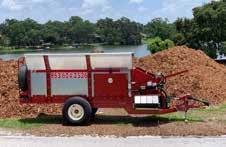
Follow
Follow Us on Facebook @inthefieldmagazine


WWW.INTHEFIELDMAGAZINE.COM INTHEFIELD MAGAZINE May 2023 62 PAGE Info@inthefieldmagazine.com Classifieds Tel: 813.759.6909 TRADE • BUY • SELL? Since 2004 In The Field has been Hillsborough and Polk Countys #1 Agriculture Magazine. Call Us at 813-759-6909 to place your Ad Today!
Us on
@inthefieldmagazine
Instagram
Access In The Field Magazine, anywhere! www.inthefieldmagazine.com • Current Issues • Back Issues • And More.
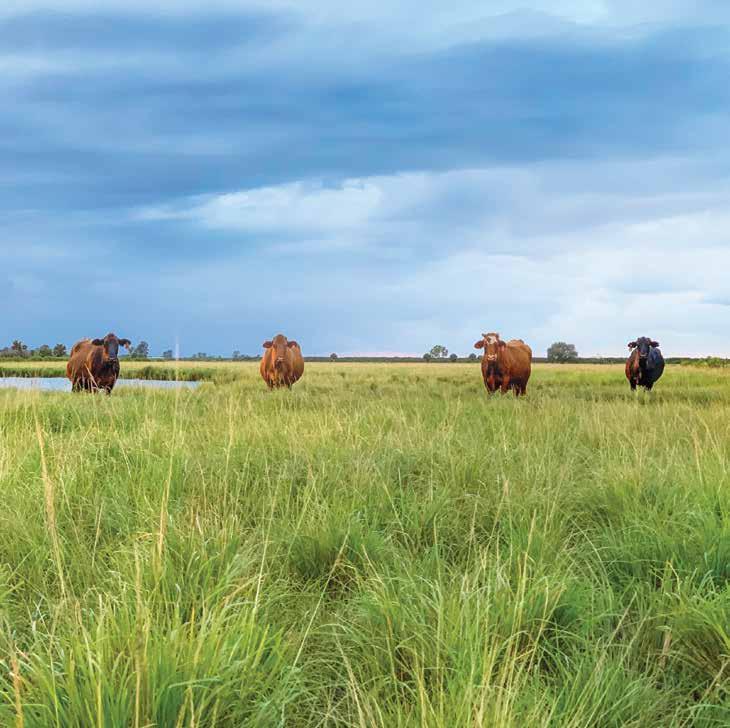
WWW.INTHEFIELDMAGAZINE.COM INTHEFIELD MAGAZINE May 2023 63 PAGE Cover More Ground with CKP Let CKP Help You Protect Your PRF Our PRF specialists are trained to help you analyze complicated insurance data so you: • Protect your land and livelihood against potential losses during times of drought. • Make the most informed decision for your business. Why now? • Very affordable – Government subsidized • Premiums are not due until October 1 • No adjusters needed • No claim forms • Protects your cash flow “Anyone can sell you a policy. But CKP invests the time to understand your individual needs and develop a strategy that will produce the best coverage results.” The USDA Risk Management Agency helps protect your Pasture, Rangeland, and Forage (PRF) from the elements. 877-CKP-INS1 ( 877-257-4671 ) ckpinsurance.com CONTACT YOUR CKP PRF SPECIALIST TODAY

WWW.INTHEFIELDMAGAZINE.COM INTHEFIELD MAGAZINE May 2023 64 PAGE













































































 By Lynn Barber, Florida-Friendly Landscaping™ Agent Hillsborough County and UF/IFAS Extension
By Lynn Barber, Florida-Friendly Landscaping™ Agent Hillsborough County and UF/IFAS Extension

























 By Jim Frankowiak
By Jim Frankowiak













 by Sean Green
by Sean Green







 By Jim Frankowiak
By Jim Frankowiak






 By Jim Frankowiak
By Jim Frankowiak


















































